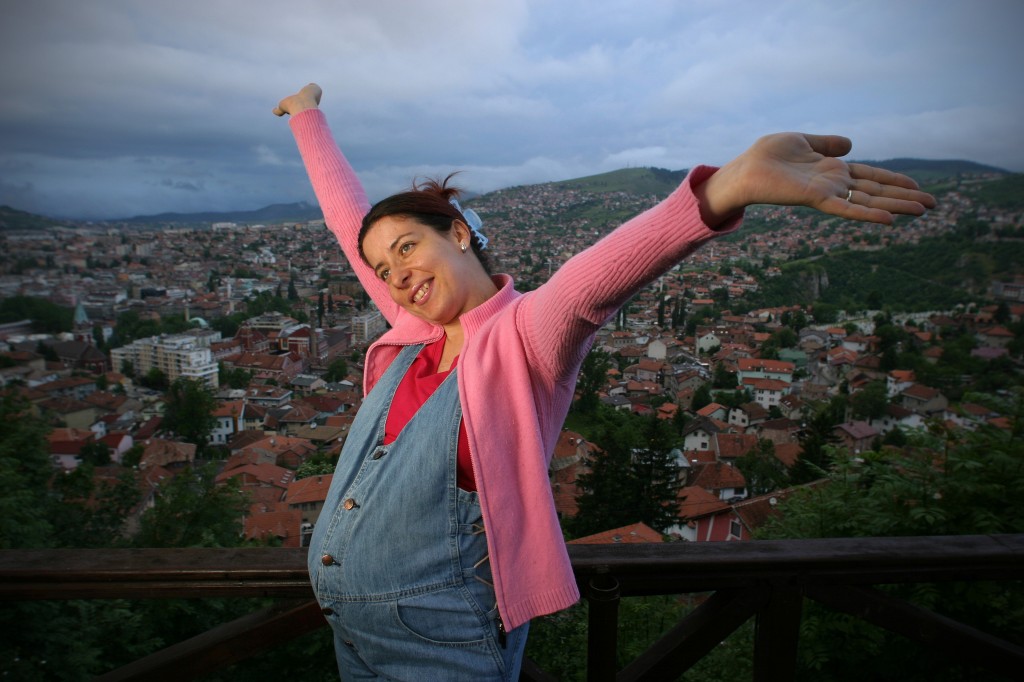portraits
the young girl who played in a car carcass
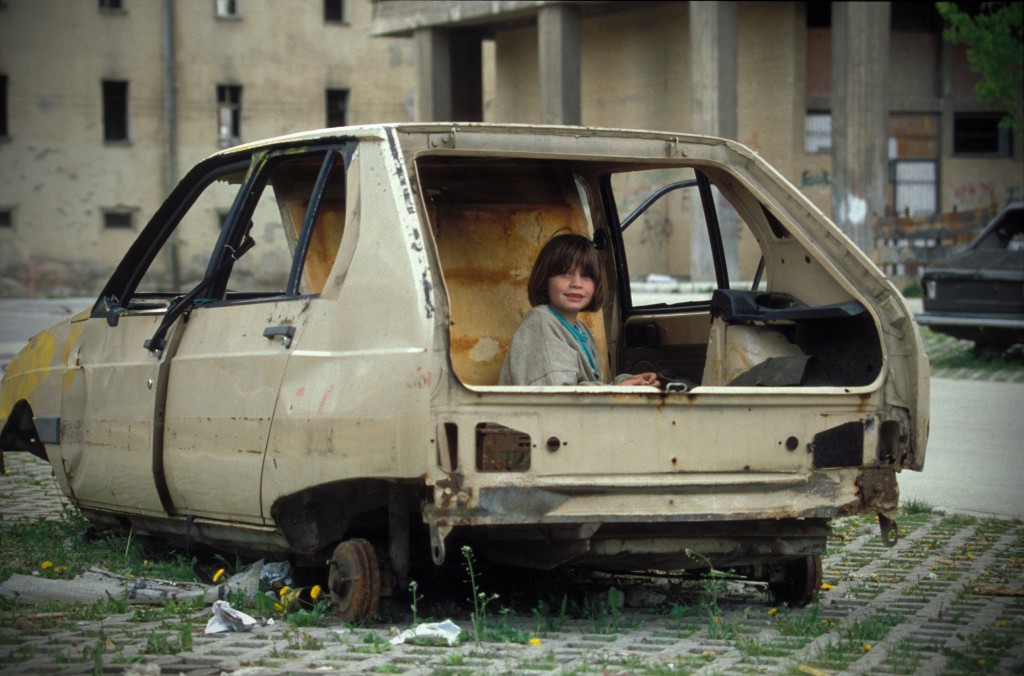
Listen to testimony
The place where I took the photo of the girl playing in a wrecked car behind the Holiday Inn was unrecognizable. The old ruined buildings had been demolished and new ones had taken their place. The whole environment had changed. I posted copies around the local area with a message that I was looking for the girl in the photo. The next day the girl’s mother called me and I did get to meet with Hana again. And I did not believe my eyes…
“I’m Hana Dapo. I’m surprised that you have managed to find me : just with this picture that my teacher saw. It’s true, I do not remember those moments but I remember that in times of cease-fire, I had fun in secret from my parents when I went to play with the carcasses of cars. I just finished my studies at the Institute of Commercial Management, a business school. Now I want to specialize in marketing and hopefully I’ll become a great leader in the marketing industry. I am working hard to finish my studies and become the best in this area and find a job in a big company. But career is not everything in life: I want to wake up in the morning surrounded by people I love, have a family and my friends around me and help them realize their dreams.”
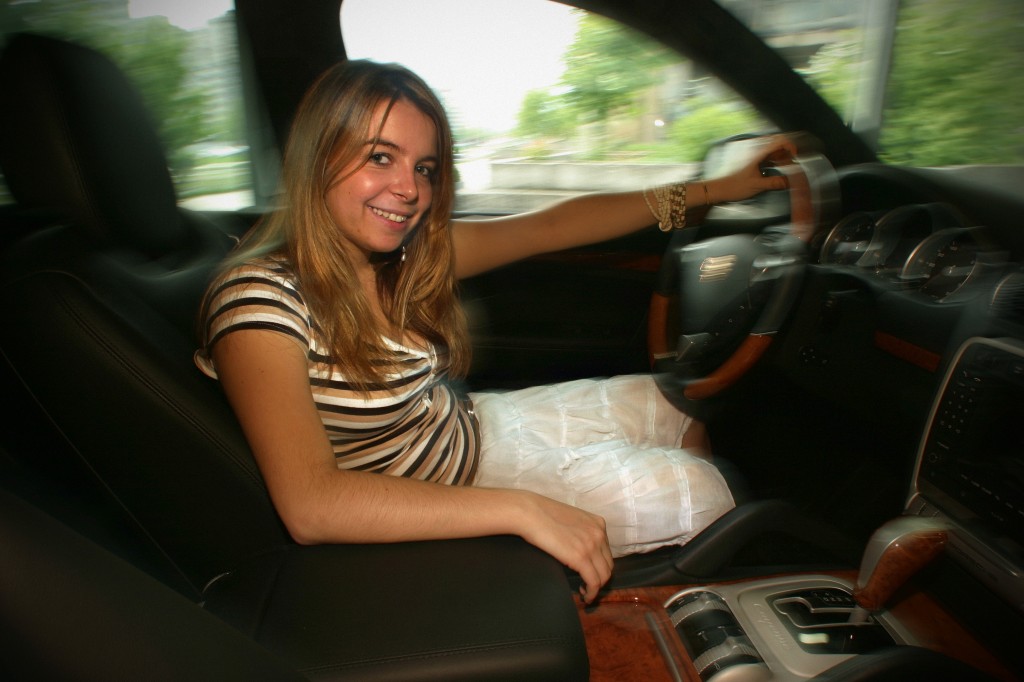
concern for the future of the young people
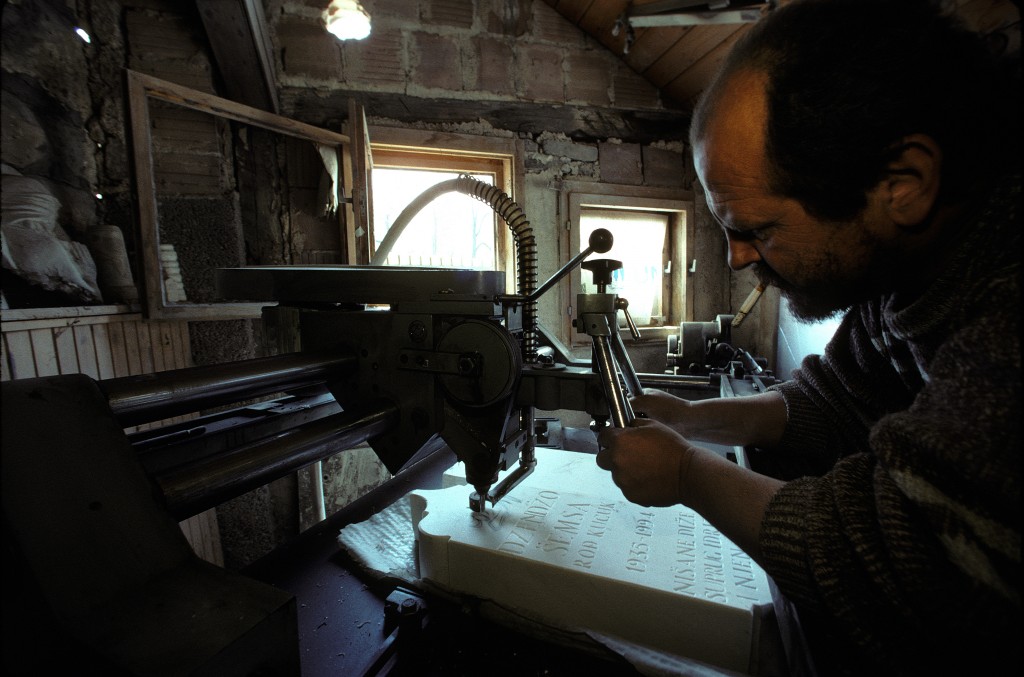
Topcagic, the marble mason never stopped carving graves during the war. After years at the Academy of Fine Arts, the demand for tombstones was much greater than that for his artwork. Today he continues to work in his studio, which is flooded with dust. His hair is white, maybe because of the marble dust, age, or perhaps because of his own worries… In any case his business seems to run well and now with a young assistant who will soon take over. Pessimistic about his own life, he meditates about his concerns for the future of young people…
“Sarajevo is fine for people who have jobs, but for the others? ……
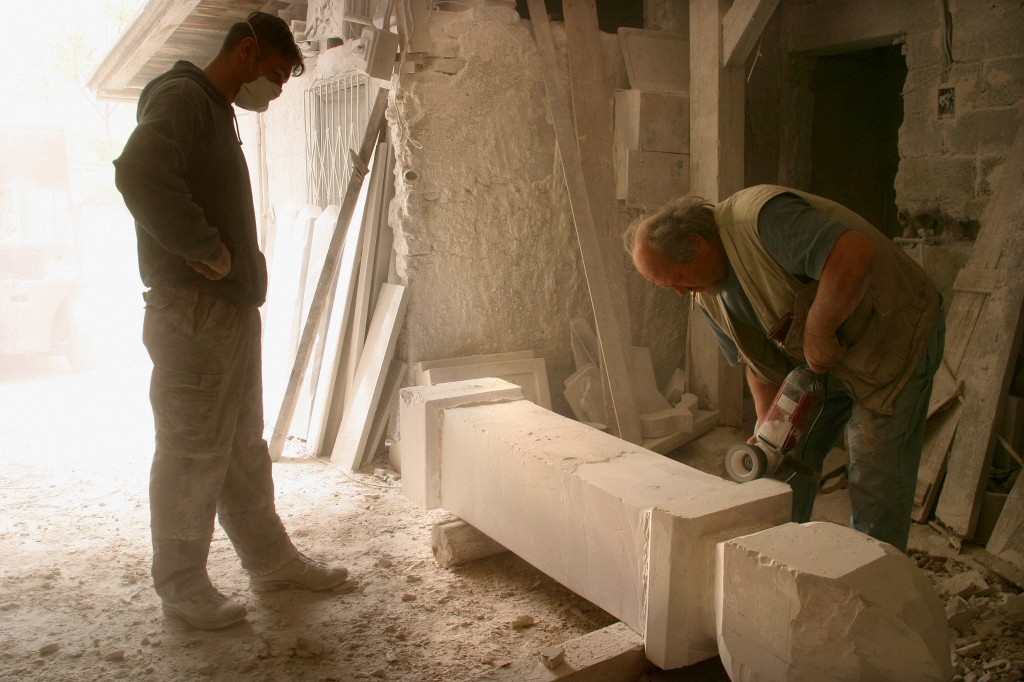
The Ballet…
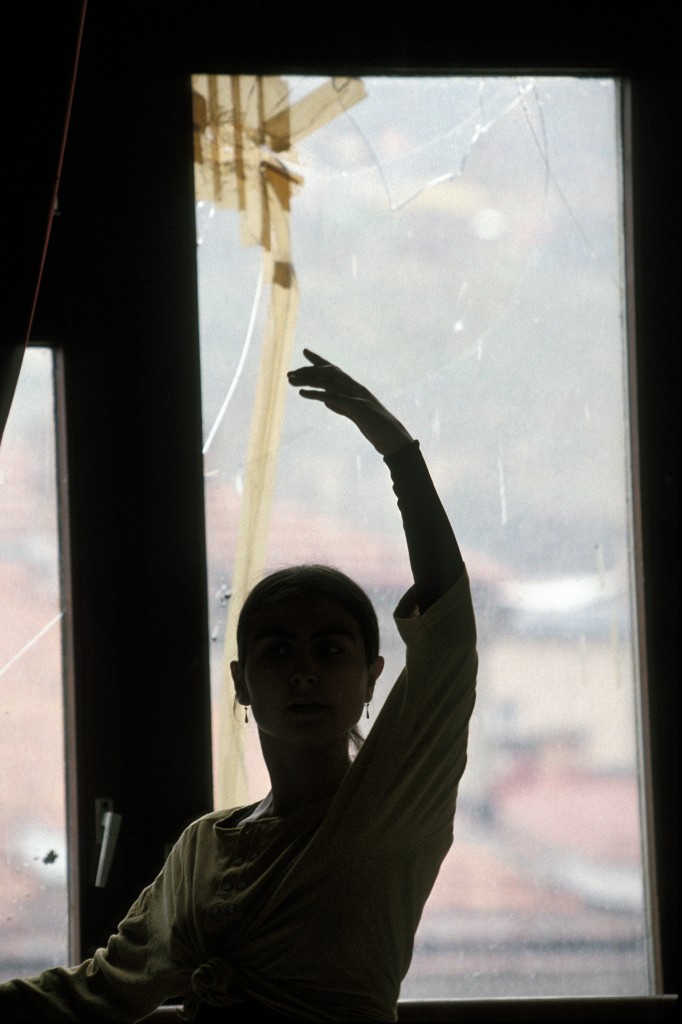
Listen to testimony
In 1994 a young girl rehearsed every day until the ballet school closed simply because it was too dangerous to dance just in front of snipers.
Exposed to direct shots, bullets and shells had crossed the windows of the rehearsal room in countless places. But while the young male dancers were marching off to the army, a young girl, “my” dancer, kept working at Swan Lake in solo, training almost every day…
…. In this dance of fate, today she has disappeared without a trace.
Tijana the musician
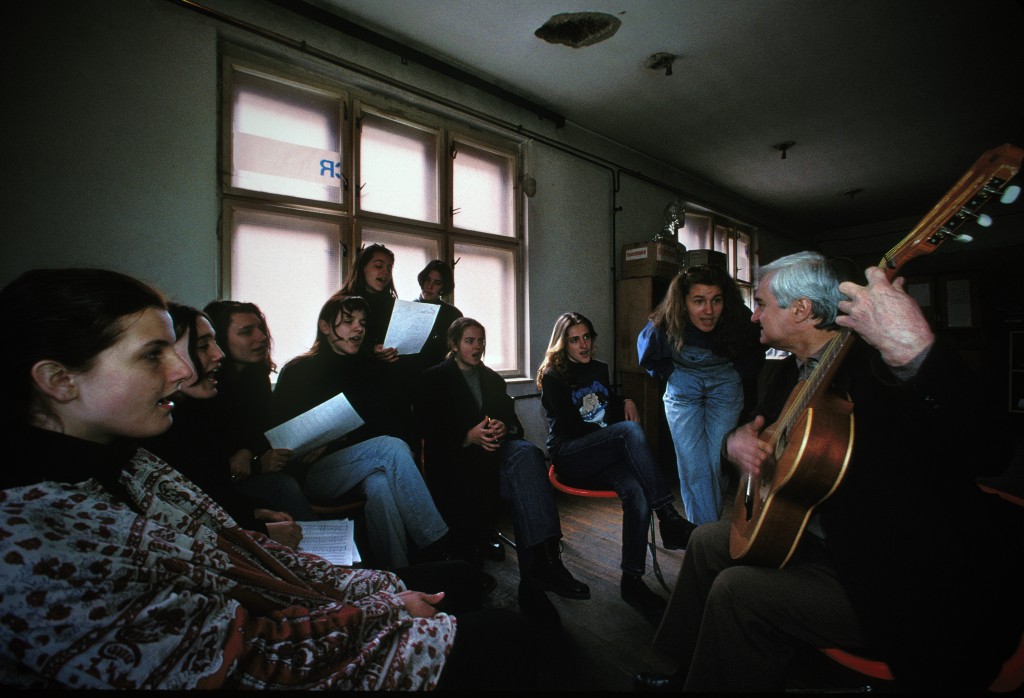
Listen to testimony
I found Tijana almost by accident: I was at the music academy in search of the young musician I had photographed during the siege. Unfortunately none of them had continued their career in music. A girl recognized a photo of the Bosnian Cultural Centre Choir Club. Tijana was, at that time a singer in the girls’ choir of traditional Bosnian songs. Their original teacher had died, and now today she leads the same choir. Today she is fully engaged in music and cultural events of every kind.
“My name is Tijana Viknimic…
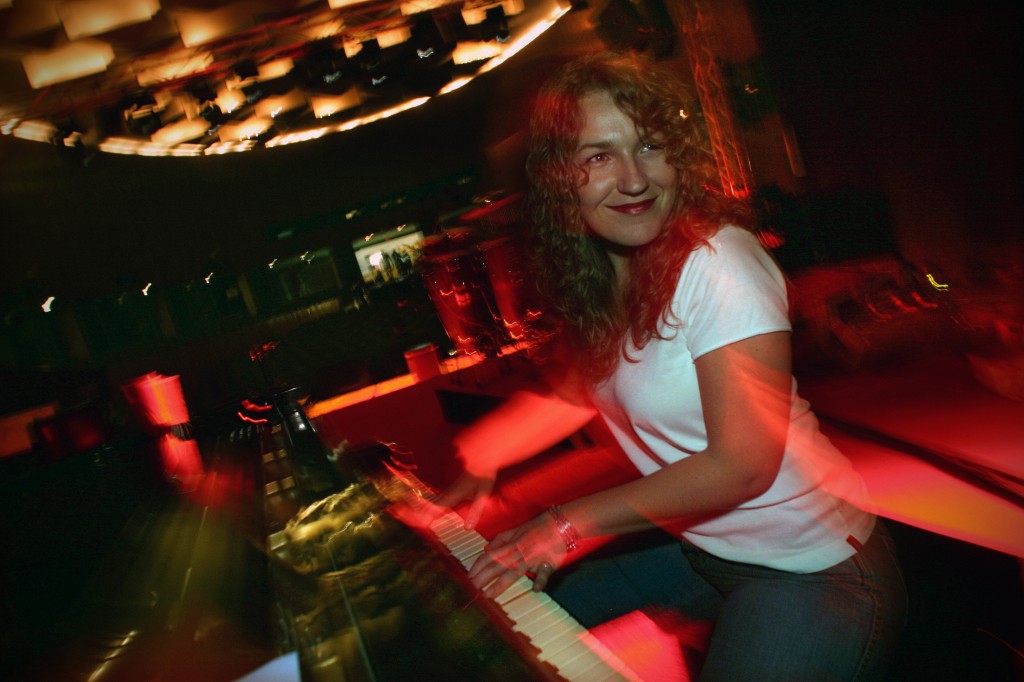
In the cemetery, the snipers
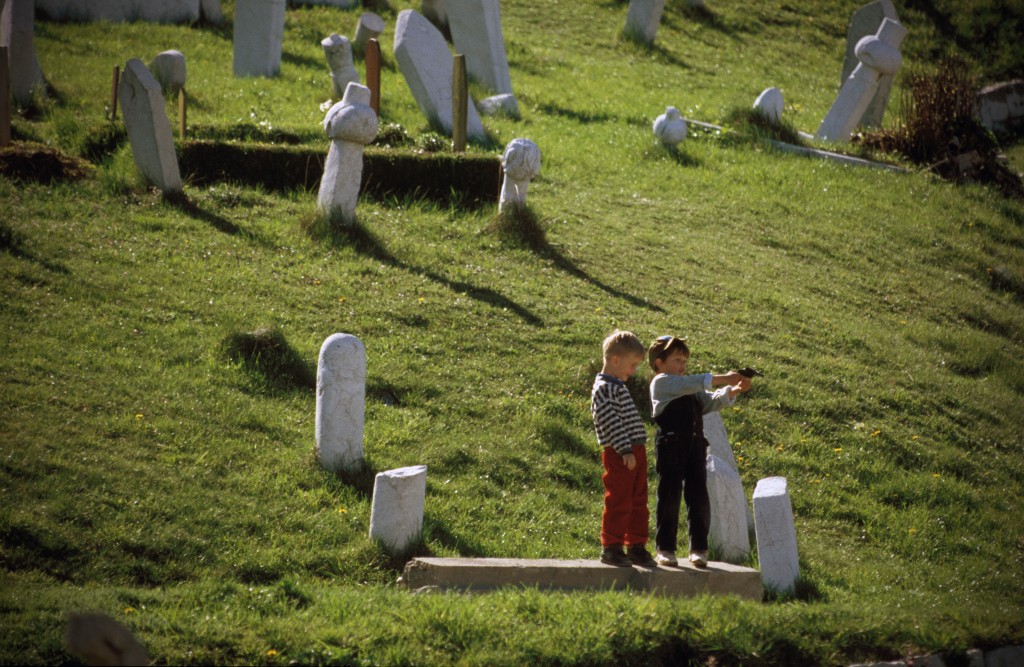
Listen to testimony
In the spring of 1994, I went to the cemetery on the hill of the city. Surrounded by old Muslim graves, some children played at war, something kids all over the world do in the midst of a conflict. They imitated the snipers, who from the tops of hills shot at their targets, sometimes children like them. Among the photos I chose one where Jasmin and Dzenan were together and with surprise I now discover they did not really know each other at the time. They had been playing together just for a few days as their families had only recently moved near the cemetery.
I managed to get them back in the same place. The cemetery has changed since. The conversation started by them talking about the memories they had from that period in their lives…
Dzenan : My God, it’s been so long. …
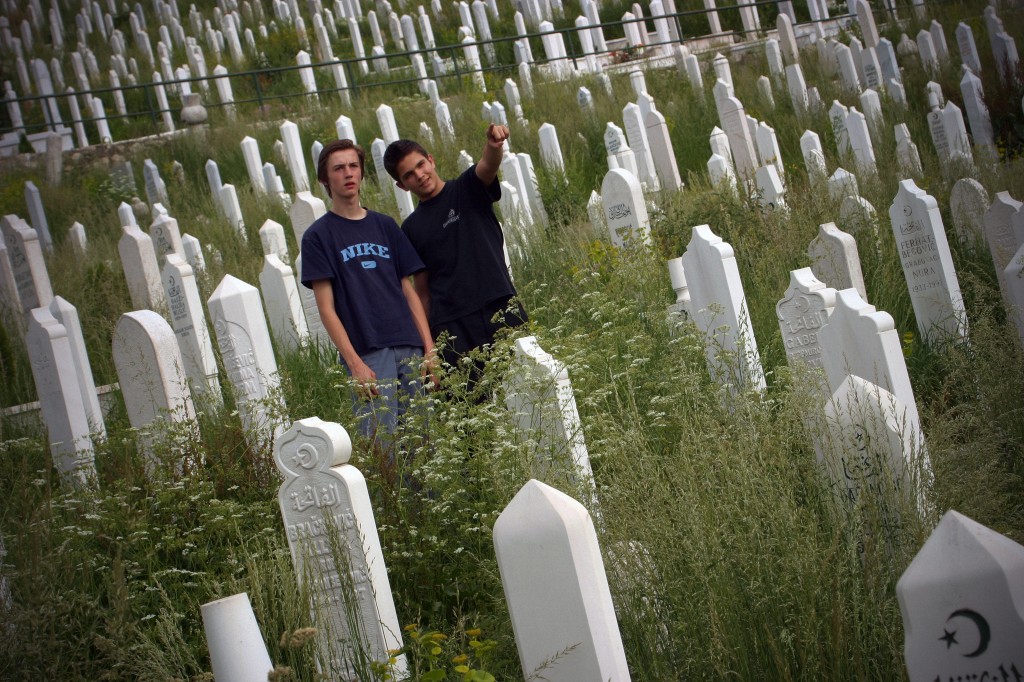
the windshield
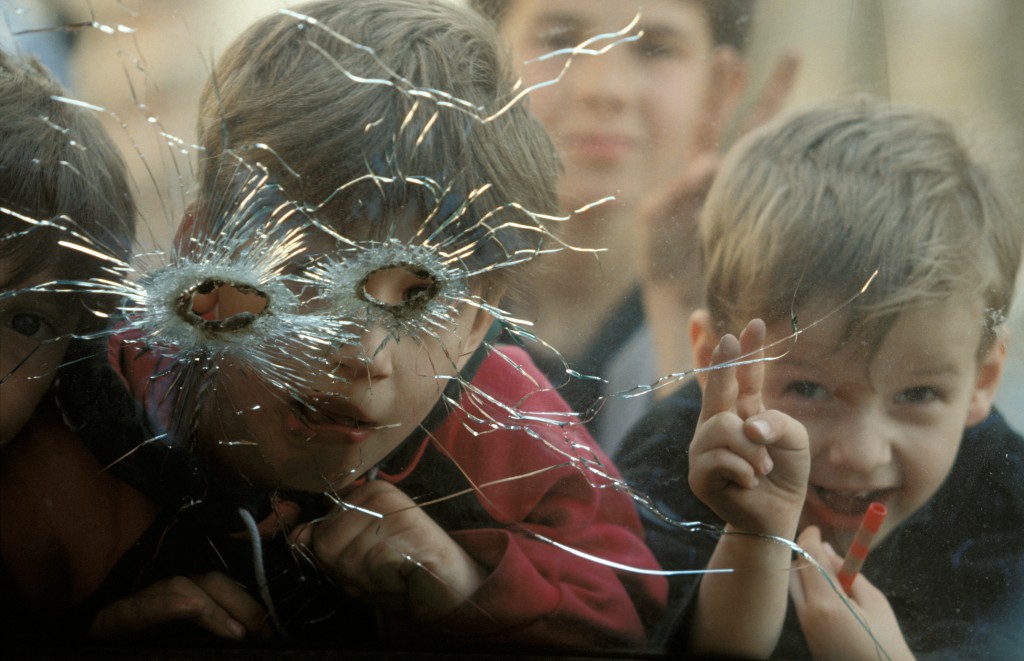
Listen to testimony
Aldin and Amel did not know each other during the conflict. Their families had been displaced to the district where I took the photo. They had played together occasionally with other children in the middle of wrecked cars. Then their families returned to their home areas. I was unable to find this place. Through the Havas newspaper series on the missing people I was looking for, Aldin’s mother recognized her son and his young friend next to him in the picture. Everything happened so fast and perhaps only now they will bind into a true friendship. After twelve years they met and talked:
Aldin : What are you doing ?
Amel : I ‘m finishing my studies. Railway studies. And you? …
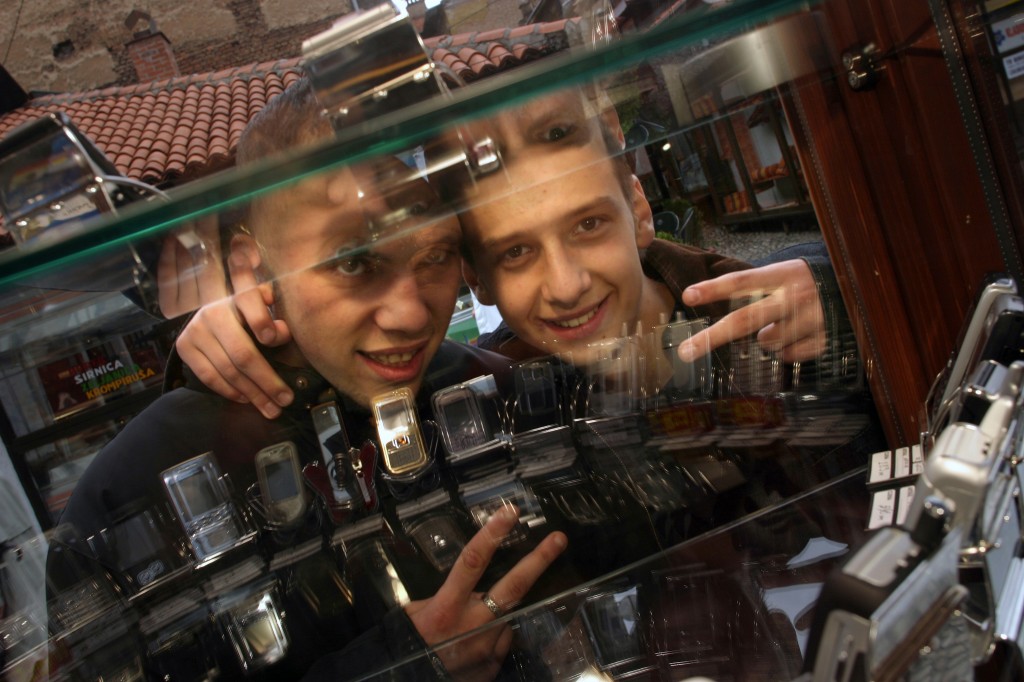
The Tram
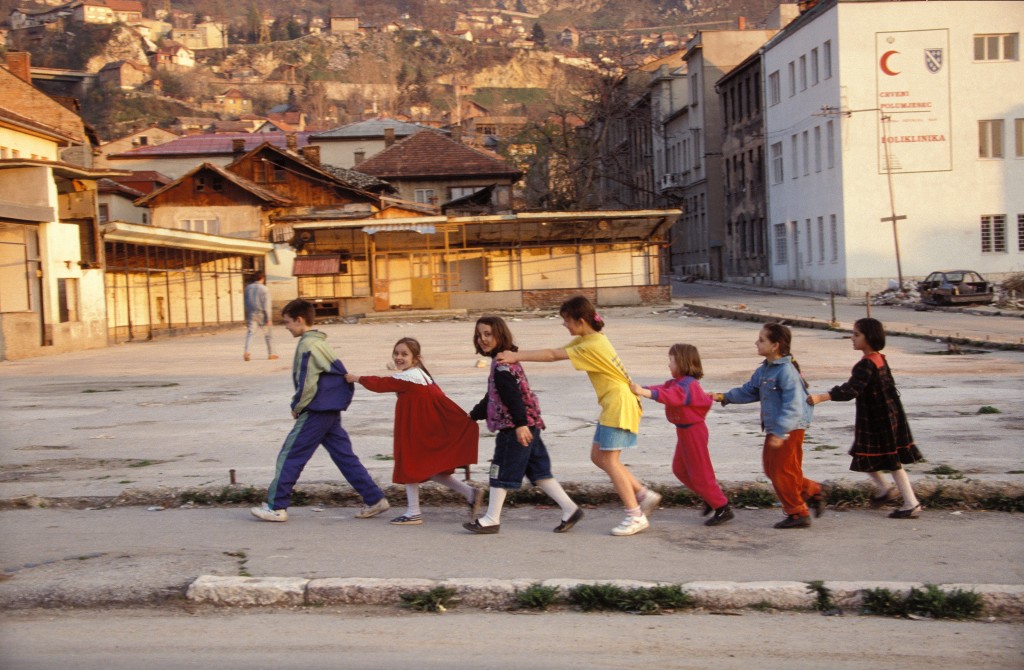
Listen to testimony
Anisa and Almedina. During times of ceasefire children were playing the tramway game in the square in front of the National Library. The real tram had ceased to function right at the beginning of the siege.
From my research I discovered that these children were from peripheral neighbourhoods, displaced by the shelling.
Through schools, colleges, universities, I was able to find out that Anisa studied medicine and Almedina, agriculture. I asked them to return to the place where twelve year before they had played together; their former playmates has been invited as well. At the reunion there were some surprises. This was the first time Anisa and Almedina had met again after so many years and immersed themselves in their memories and stories.
Anisa : This crazy photographer went through primary school, high school, and went back up to the medical school where I study. He toured the city, just to find me!
Almedina : “Not that crazy, you know ! After all, we are back together after all these years. Who would have ever imagined?…
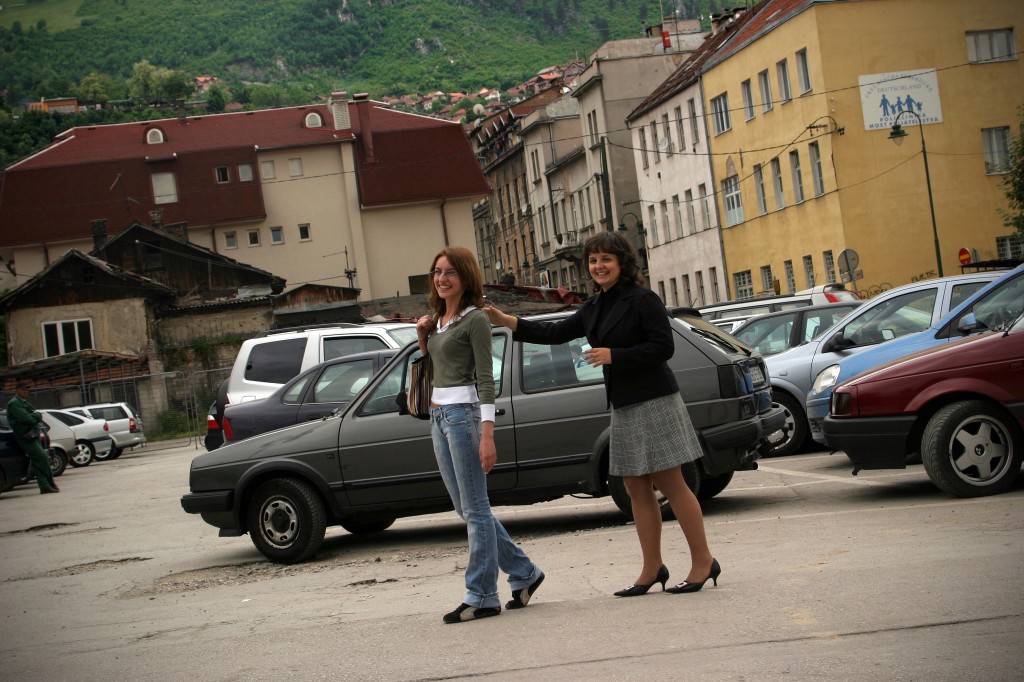
The Twins
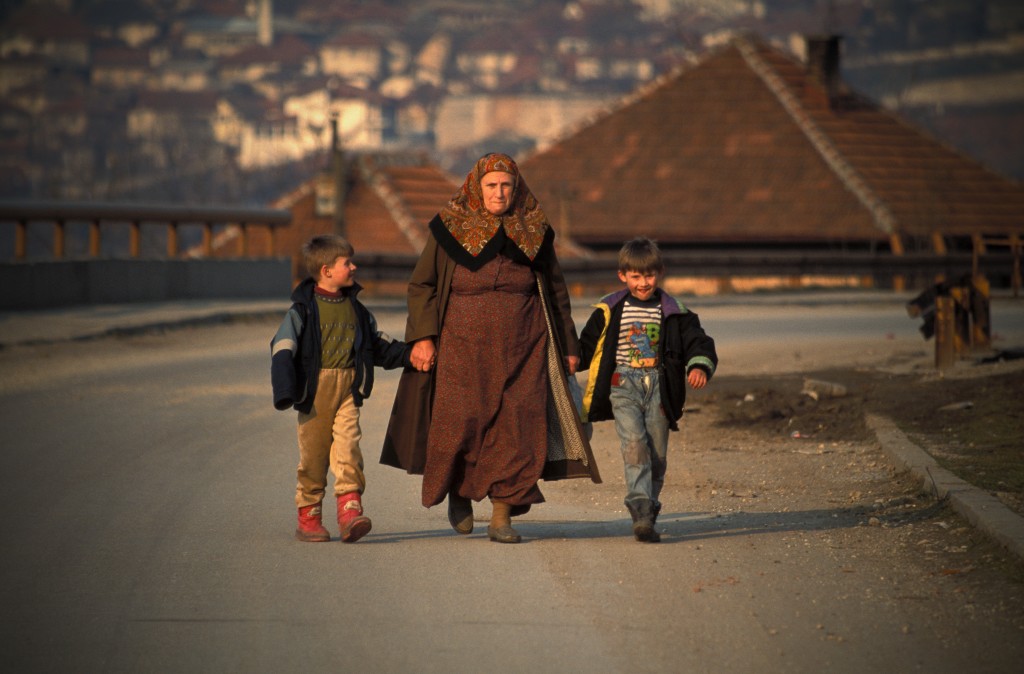
Listen to testimony
Both twins Nadir and Faruk were very happy in 1 994 when, between curfews, they were allowed to go out with their grandmother. At the time, queuing for sugar and flour was an adventure for the two young boys, as it was for so many kids locked up at home by fearful parents. I walked around Bistrik Hill for one week before discovering that the two little boys are today teenagers. Aisha, their grandmother is gone, she had survived the bombing but has succumbed to age. The two boys are inseparable. Both are reserved, and they do not like to to speak about the past.
“My name is Faruk Telalovic. I study at the School of Medicine in the branch of physiotherapy. I remember my grandmother Aisha. She loved us, she cared for us, my twin brother, Nadir, and me. She took us outside between two bombings. I still remember the sound of bombs…..
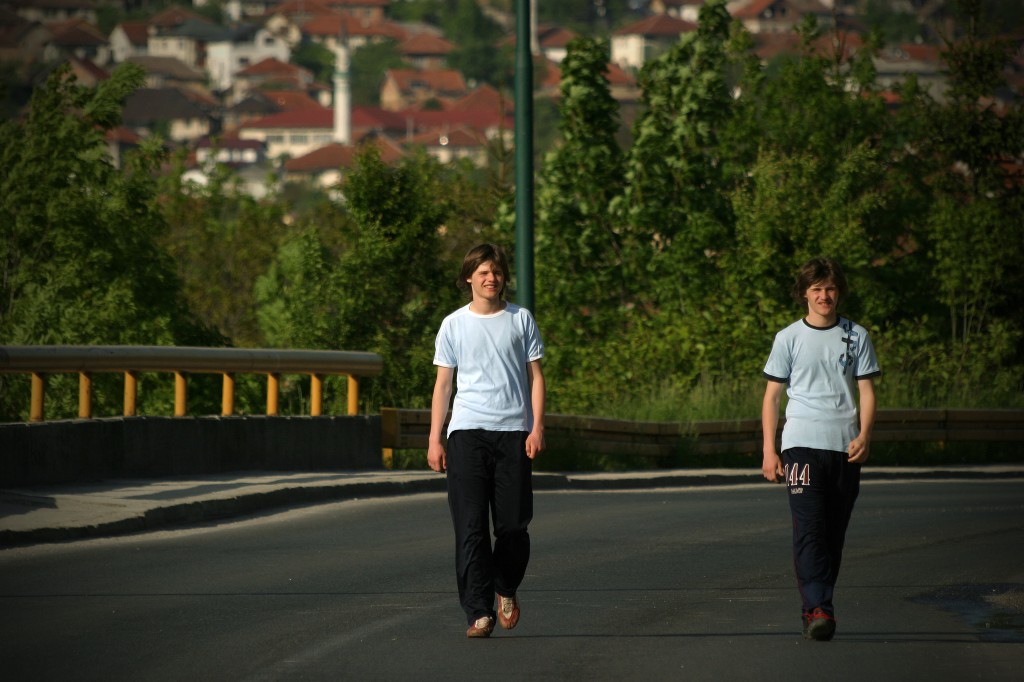
Namik and his sheep
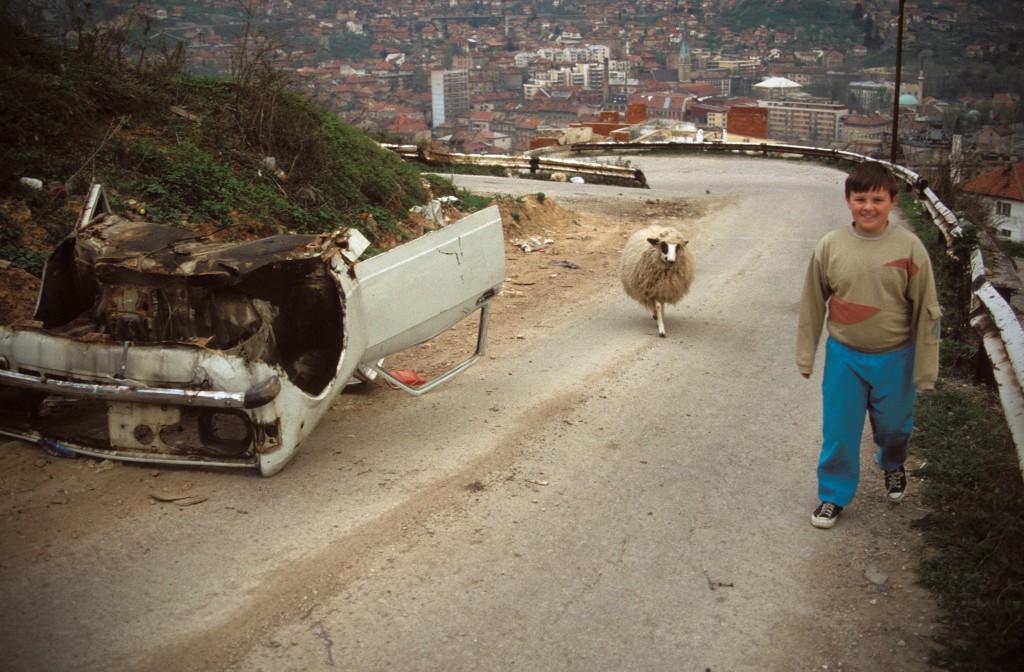
Listen to testimony
Namik no longer goes about with his sheep. Today, because of financial problems, Namik still lives with his parents and works as a taxi driver. He would like to change jobs. In spite of precariousness, he still has high morale and a sense of optimism.
“I graduated and afterwards I got a job as a taxi driver. You saw for yourself, people showed you where I live but it was hard to find me at home! I work twelve hours a day and within a month I can take only two days of rest…
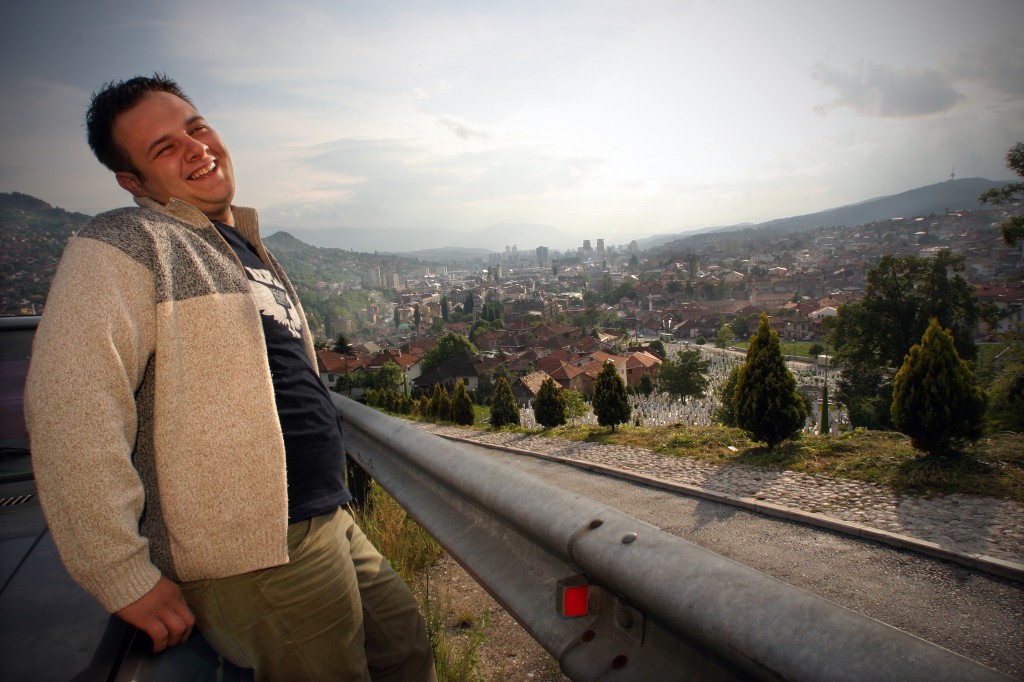
Sevala, Bascarsija “stone” during the war
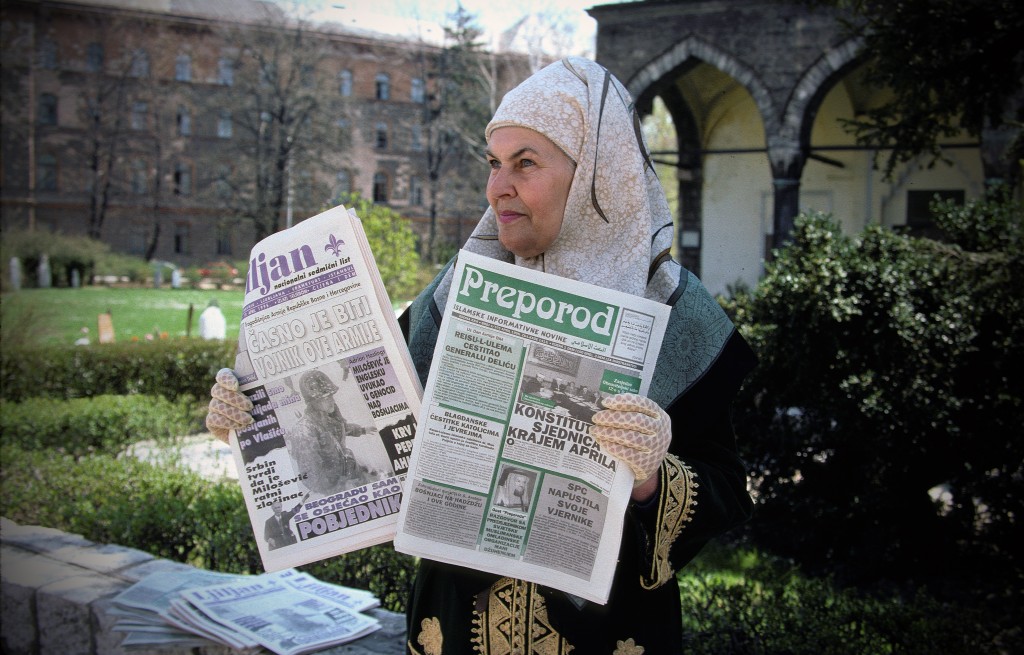
Listen to testimony
From the beginning of my research everyone reacted in front of the photo of the woman who, during the war, dressed in traditional costume and sold newspapers every day in front of the Mosque…
I was assured it would be very easy to meet her, especially in the morning in the pedestrian area.
But after three weeks of searching, she had four different names, was at five different places and more then that, some people thought she had died. By the fourth week of research, when this meeting seemed impossible and I lost the hope of finding her, a girl told me to come in the early morning before the distribution of bread and flour at an assistance centre for underprivileged families. Sevala was there. I had a problem in recognizing her: she was no longer in traditional dress, she was not wearing a headscarf, her skin was not as white as before, she was getting older but still beautiful and her eyes still shining bright. In a trembling voice and point of tears, she spoke to me:
“Thank you, thank you. My name is Sevala. You’re the first person in years who has asked my name, who is truly interested in me. I could disappear and nobody would have noticed.
I sold newspapers during and after the war for over fifteen years. I am the “stone” of Bascarsija (the old historic district). The whole city bought newspapers from me, but nobody cared about me. Nobody even asked me anything other than newspapers, nobody offered me a coffee. Everybody knows me but nobody can tell you who I am.”
I was moved by these words and I followed her to the small apartment in Novo Sarajevo. In an elevator which was falling apart, we slowly climbed until the sixteenth floor of a dilapidated tower.
”Welcome to Sarajevo, ” she exclaimed, pushing the door open to a small apartment still in ruins, which showing obvious signs of conflict. Without money, no water, no electricity!
“Come I’ll show you my Yugoslavia.”
I did not understand.
Sevala opened a big box from which she displayed her past : her degree in Arabic language, the pictures of her trip to Belgrade, photos of students, her “dear Tito”, the soccer club players of the former Yugoslavia but also her precious old Yugoslav passport.
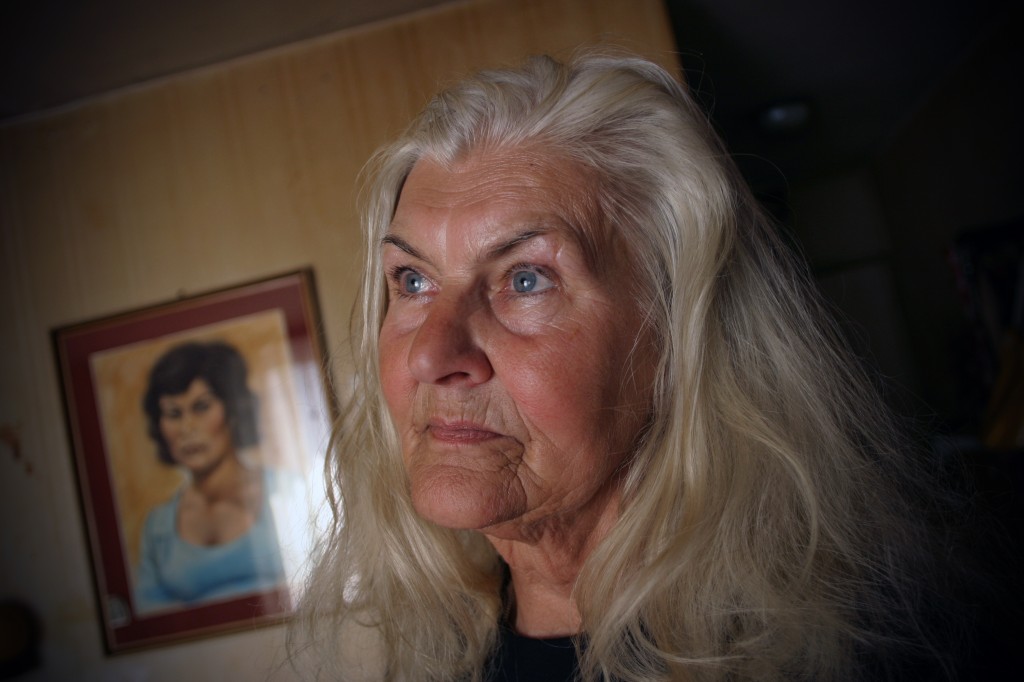
Nejra with her flowers
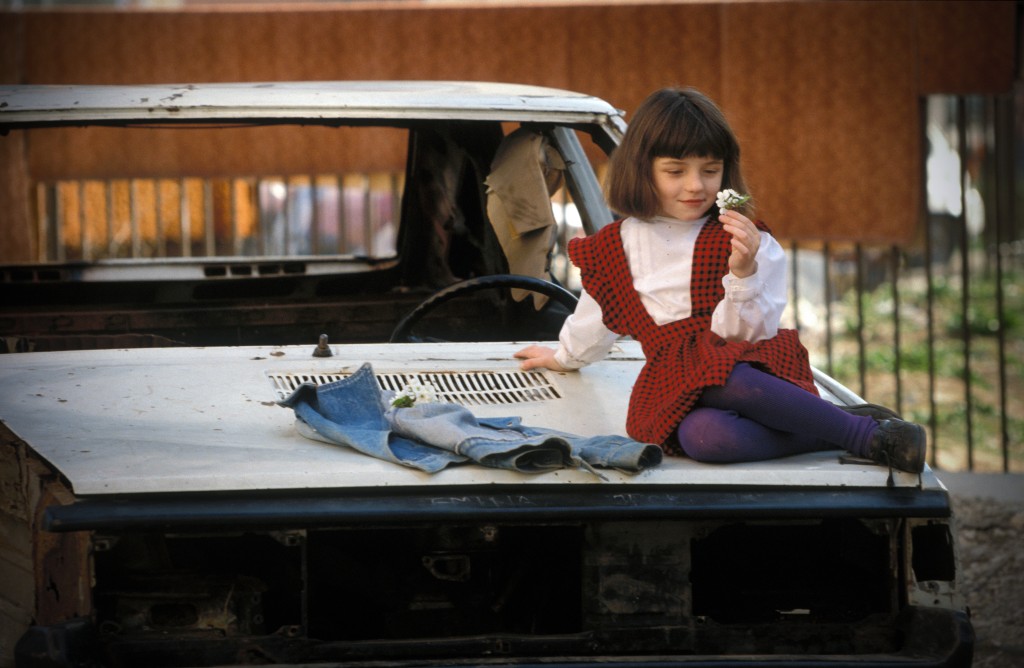
Listen to testimony
It would have been impossible to find the girl sitting on the destroyed car with a small bouquet of flowers if Havas newspaper had not published the photo of Nejra and her mother had not recognized her. I was finally able to visit her in the house the family had been forced to abandon during the siege. The girl had become a lovely young woman but her passion for flowers has not changed.
” We are quick to forget the main issue nowadays: we survived, we are alive and healthy. Despite this, we feel the need to complain and to invent all sorts of problems. During the siege, we were aware that time was running out fast. We lived without any relationship to money because we were all alike.
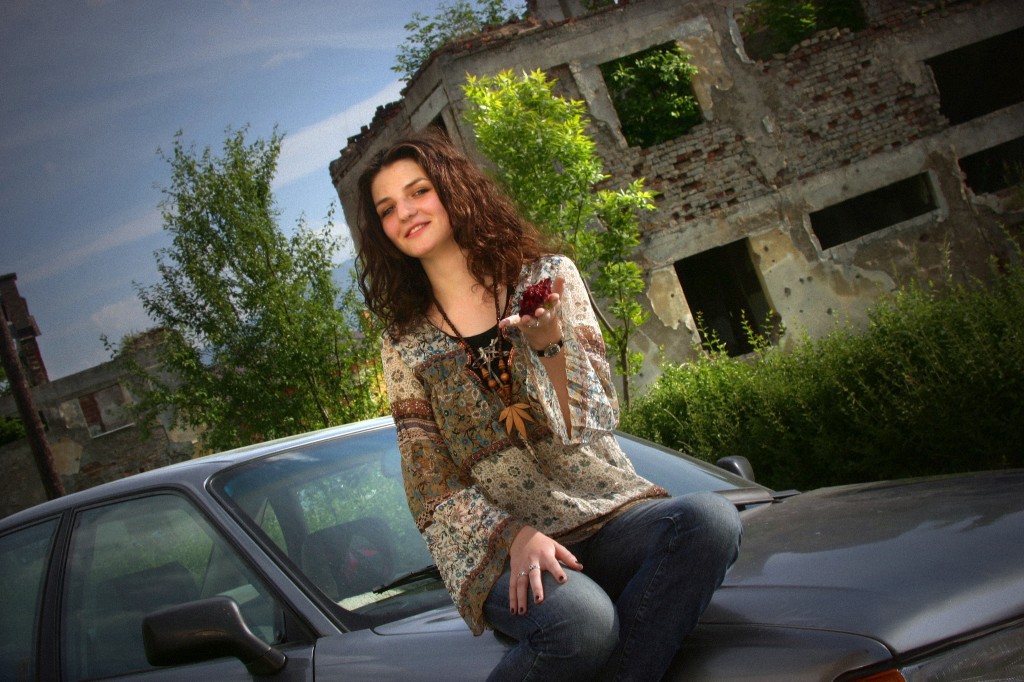
Minela and the gym
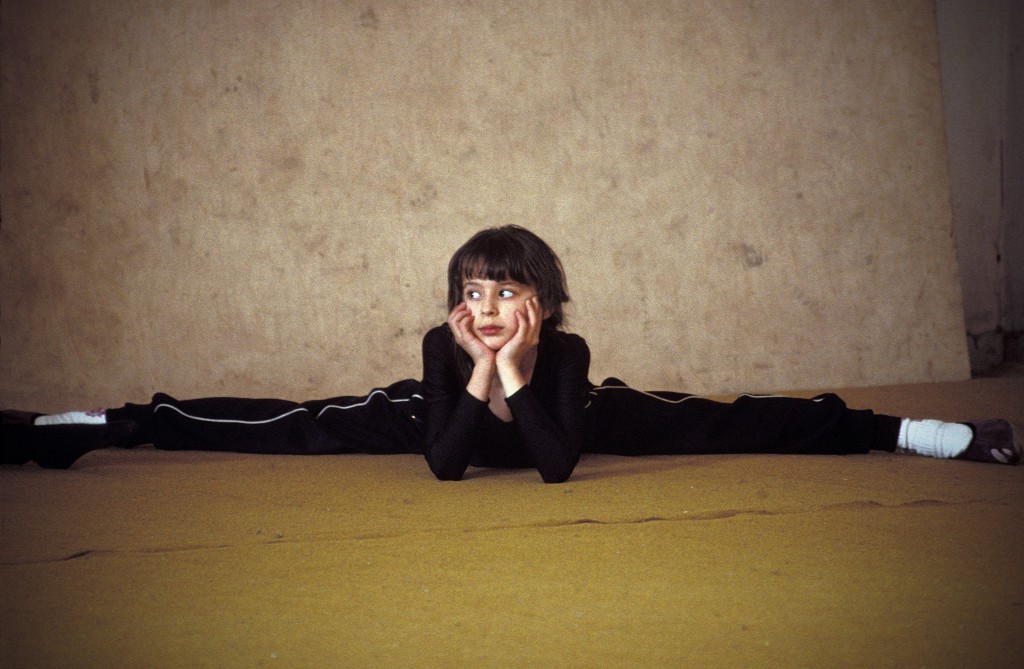
Listen to testimony
Minela today is 20 years old, she has lost some of her flexibility, but her face a little melancholy in 1994, today shows an obvious love for life and her smile becomes… explosive! Like other parents, hers encouraged their daughter to start activities in the enclosed building and therefore safer… The gym has never been her true future but just a hobby… and today she works as a dental technician…
” Why I quit gymnastics? In 1995 I went to England for a competition, I had no great ambitions but I liked it a lot : for me was a test and I had good scores. Three months later I broke my arm and stopped training…
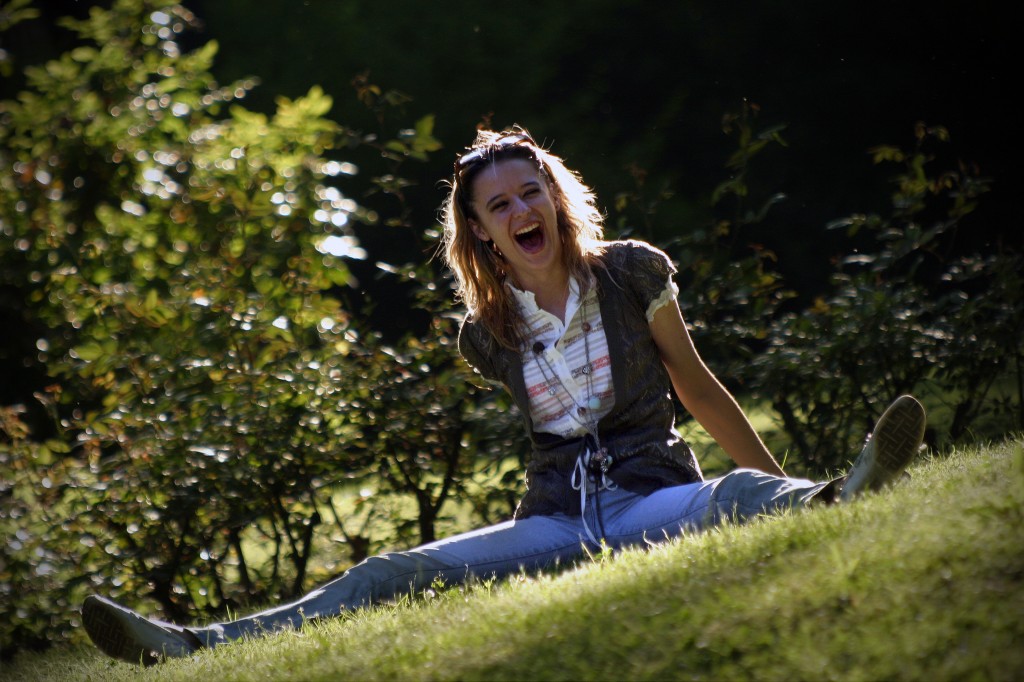
Jasmine in the bunker during the bombing
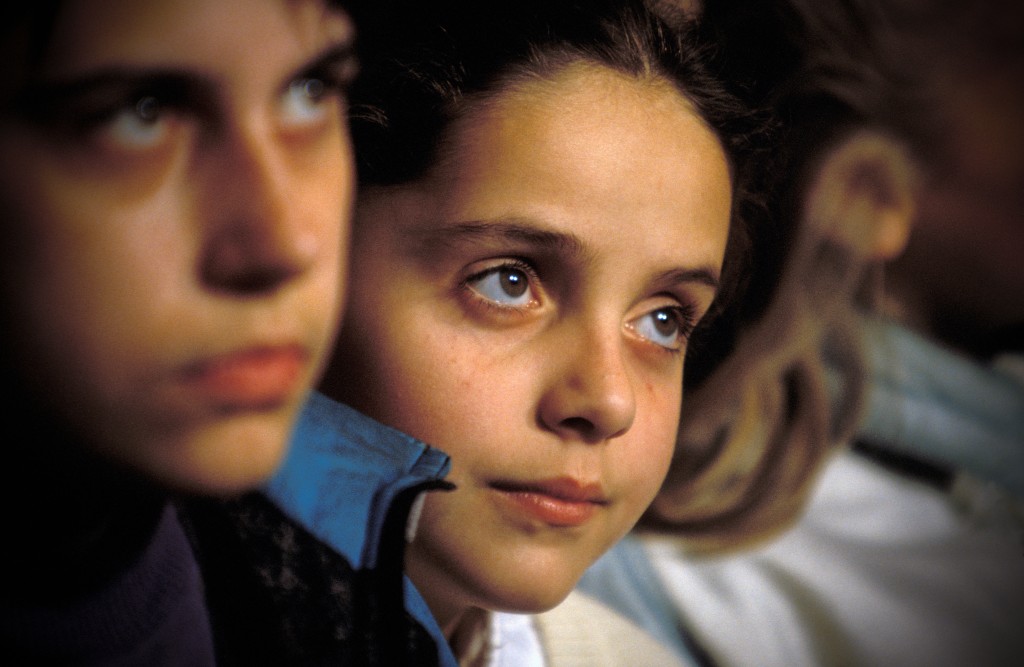
Listen to testimony
Jasmine, was eight or nine years old, when I met her in a bunker in Cengic Vila during spring 1994, where she was waiting for the bombing to stop, with the other children.
In 2006, there were no traces of the bunker in the area, but the guard of the school nearby there recognized the girl. Today she has a strong personality she is ambitious and speaks fluent English. Jasmine worked for an international organization on programs to assist children traumatized by war. She is very outspoken, very critical of the youth of her generation who, she says, do not dare to take any initiative and just think about “dolce vita”….
” In Sarajevo, a majority of young people got used to complaining about the situation: no job and therefore no way out. All they do is sit in cafés in front of their espressos while waiting passively for something to change…
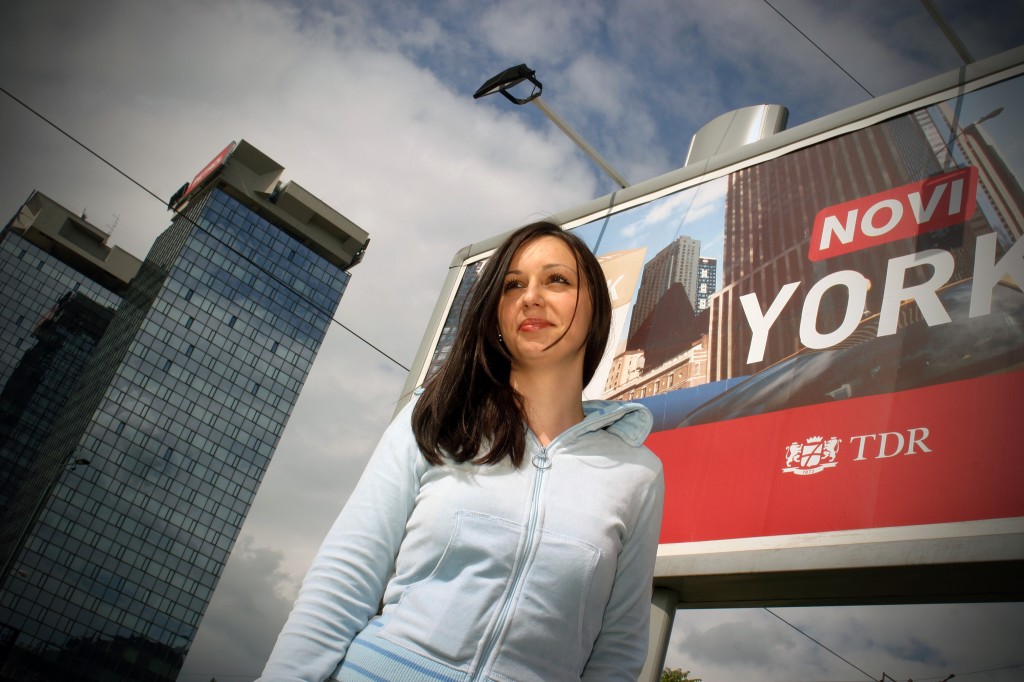
Mesko and Elma
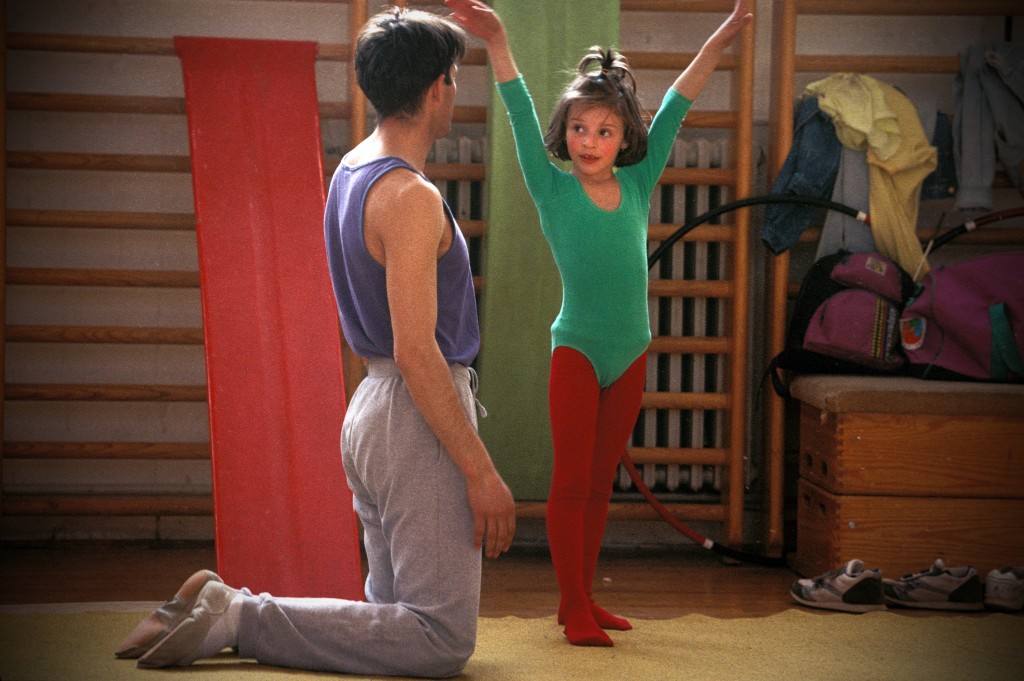
Listen to testimony
Many stories to discover about Elma, Minela and the others girls, all very young who were training gymnastics. Mesko was their trainer. After many years, the passion for sport has gone, life has taken over. The girls have grown up, but their teacher Mesko preserves warm memories of these days, however dreadful their context.
I was to encounter this paradox more than once…
Mesko,to Elma :You see, after twelve years because I scolded you so much, today I bring you a bouquet of flowers.
Elma : I accept your apology, I wonder why we stopped seeing each…
Minela : I think that with the reopening of school, we had a lot of work. The gym training was not so important for us, we were no longer motivated. But we had a good time together, that was the most important thing.I promised myself that my own child, one day, I would do the same.
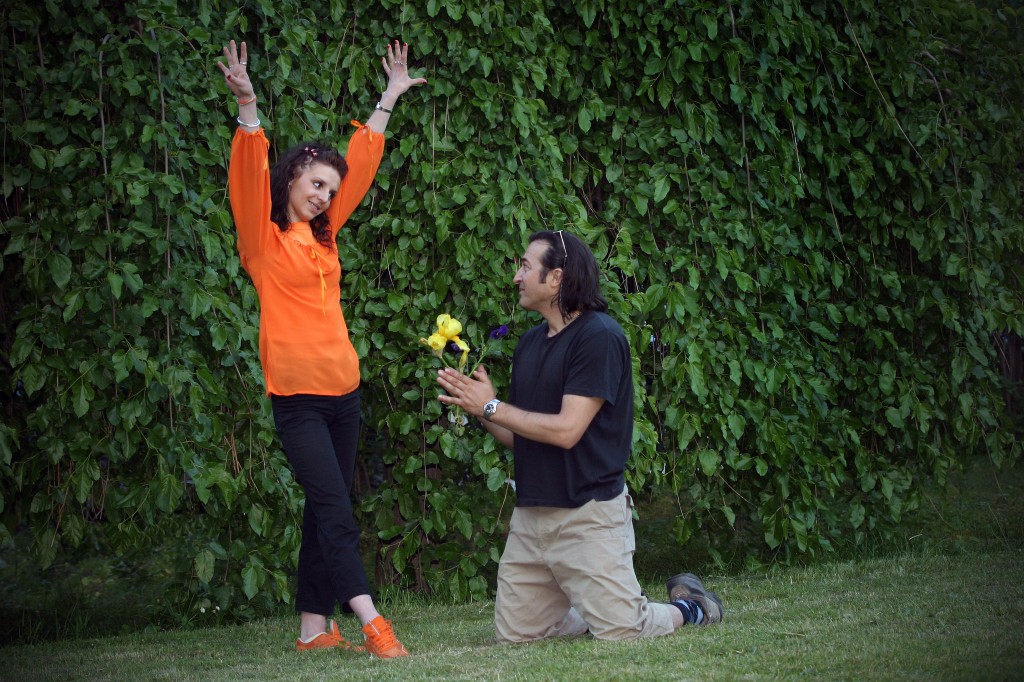
Gipsies family
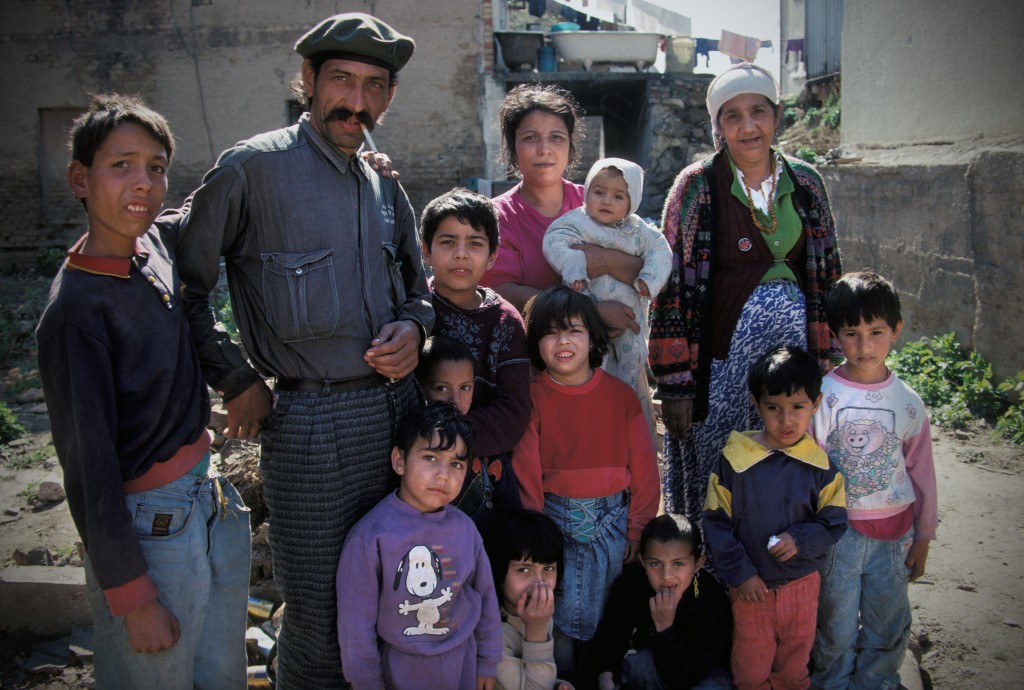
Listen to testimony
Many things are changed in the life of the gypsy family Demala.
After 3 days of search and false trails that led me in vain all around the city I discovered that this family lives in a new apartment in the Otez suburb near the city.
Atida, the matriarch, gave me the news of the various members of her family on the photograph. Bekim, Ganimeta, Isaia, Sanson still live with her, the youngest are in school.Valentina left for Germany. Job prospects are bleak.
Atida (the mother) : We live here, in Otez ; this new apartment is nice but not big enough because we have many children.
Despite appearances, the living conditions became very difficult. We have no work, nothing to put in our mouths.
There is a lot of poverty in Bosnia. My ex - husband, the handsome man with the hat in the old photograph, left for Italy in the gypsy camp in Florence. He left me with eight children. Now I have a new husband. But he’s sick and I am as well, I must take insulin. When I take insulin, I feel bad because I have not eaten. I have a lot of trouble. I have a lot of unpaid bills but anyway I have no money to pay them. I receive very little money. But as you can see, we’re all there, we survived. All except my mother who died some years ago. She was old. Valentina is no longer here: she went to Germany, looking for a better life ! Can you could help us to have a visa for Italy? At least for my son?
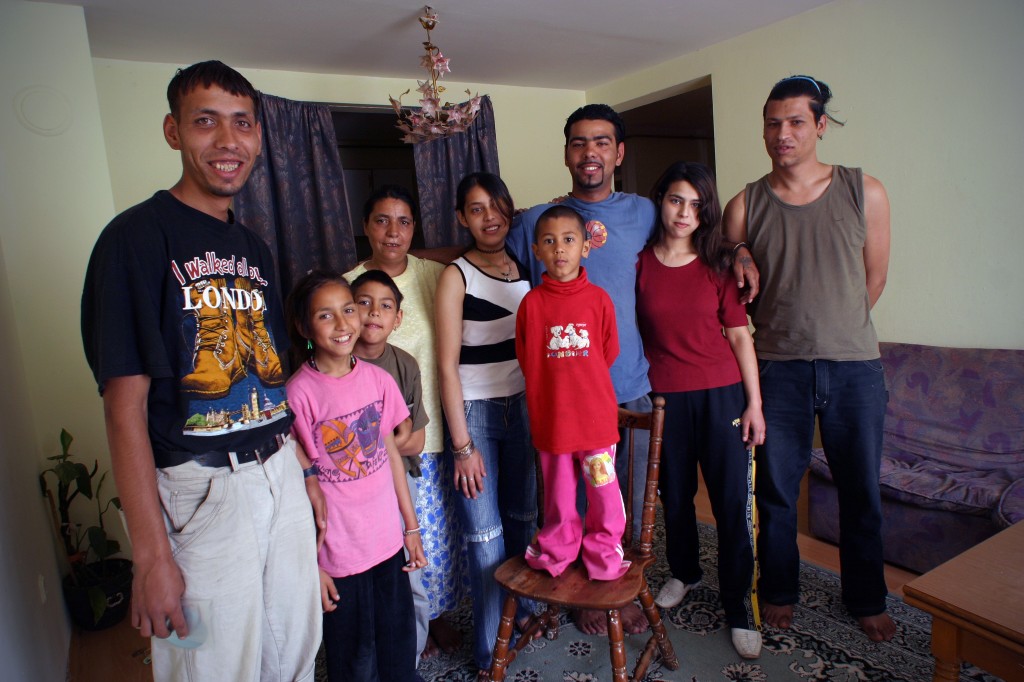
Ganimeta, the shy little girl
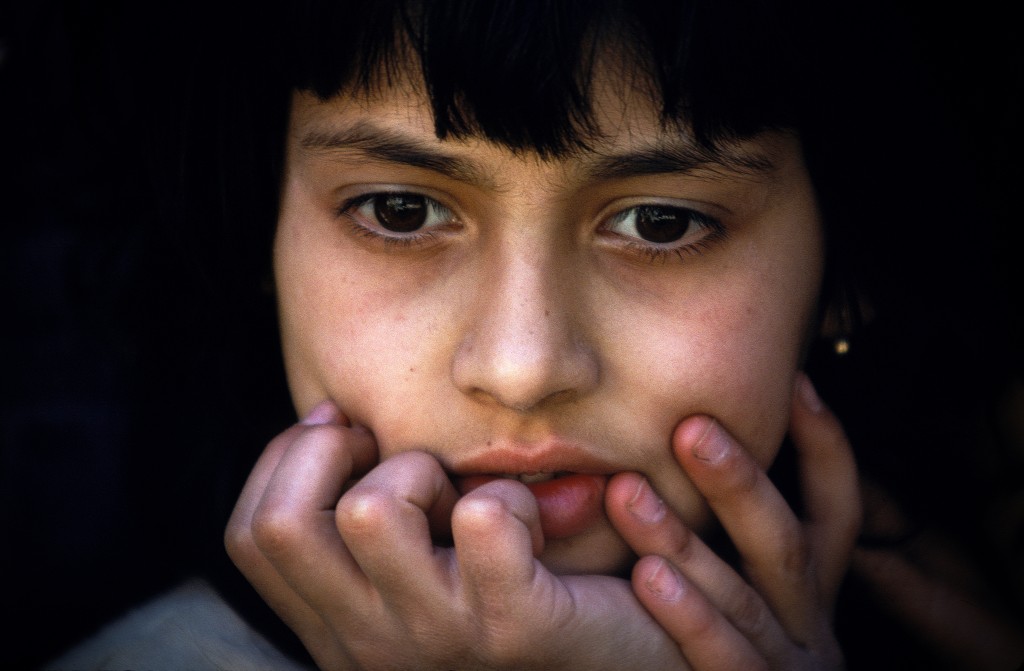
Listen to testimony
The young Ganimeta, the little shy girl, had grown up and is now a lovely girl who dresses like the others girls, attending school and trying to get away from the Gypsy lifestyle and traditions.
“It’s me, that’s me !”
She recognized herself in the portrait where the shy and anxious young girl hands over her mouth,who stared into emptiness.
“When you shot those pictures I was 9 years old. Now I’ll be 21.Mama you’re exaggerating. (to her gipsy mother) Thank God we are all alive. Thank God none of us was hurt and we did not remain disabled. But we hardly survive because we do not work but deep inside ourselves we’re happy!”
Ganimeta poses for me with the same attitude of twelve years ago, but she has changed and her eyes show the joy and the ambition of a young girl.”Today I am going to school and I make up for lost time and studies. I like going out with my friends and one day I would like to get married with an italian guy”
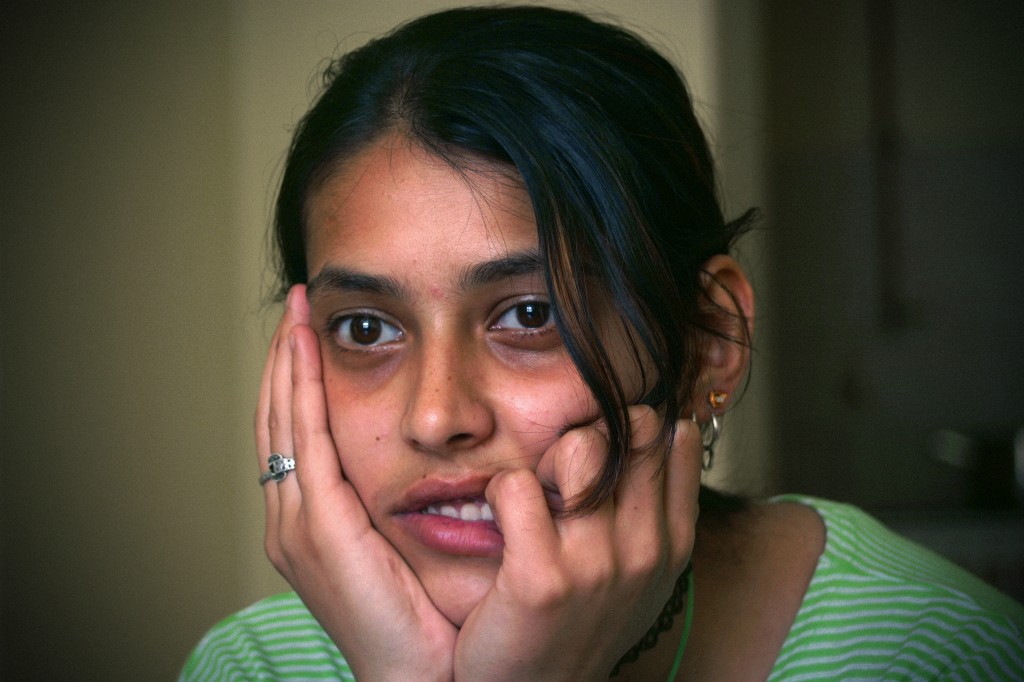
Bistrik girls
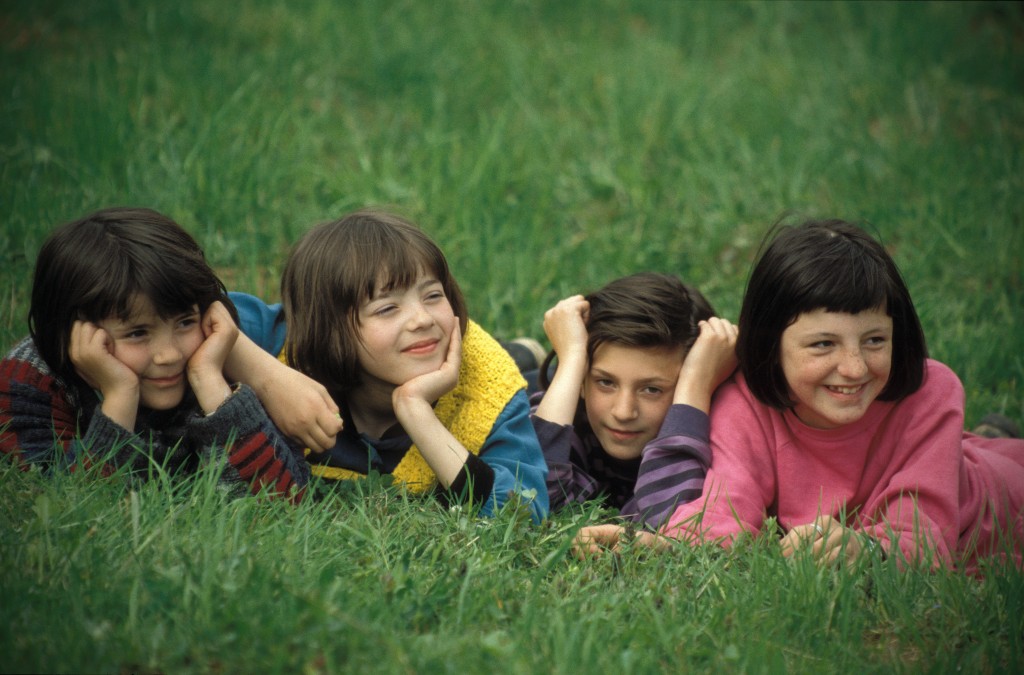
Listen to testimony
The four little girls played carefree in the grass on the hill, away from the snipers. Today on the hills of the city the grass is high, nobody plays anymore in that field; by chance, I met an old woman who recognized Amra and Leila. They had returned to Grbavica where they had originally lived before the war, before it had become a Serbian enclave. I had looked for them in university and in various neighbourhoods, now refurbished.
Finally I found them. Amazed, they wanted to help me find the other two girls and, through the joint mobilization of their families and friends, after several days the group was once more united.
But there is one thing surprises me: since that time the girls had not been in touch and the sisters didn’t even remember name them their wartime playmates. This has happened more than once, and shows up the limitation of a photograph, which is never more than a slice of life at a given time.
Elvira : I have completed my pharmacy studies. But I will go Law School. Tomorrow we will have the end of year party…
Merima and me, we’re happy to have found each other. Thanks to your picture and your research… we are all together, like… many years ago…
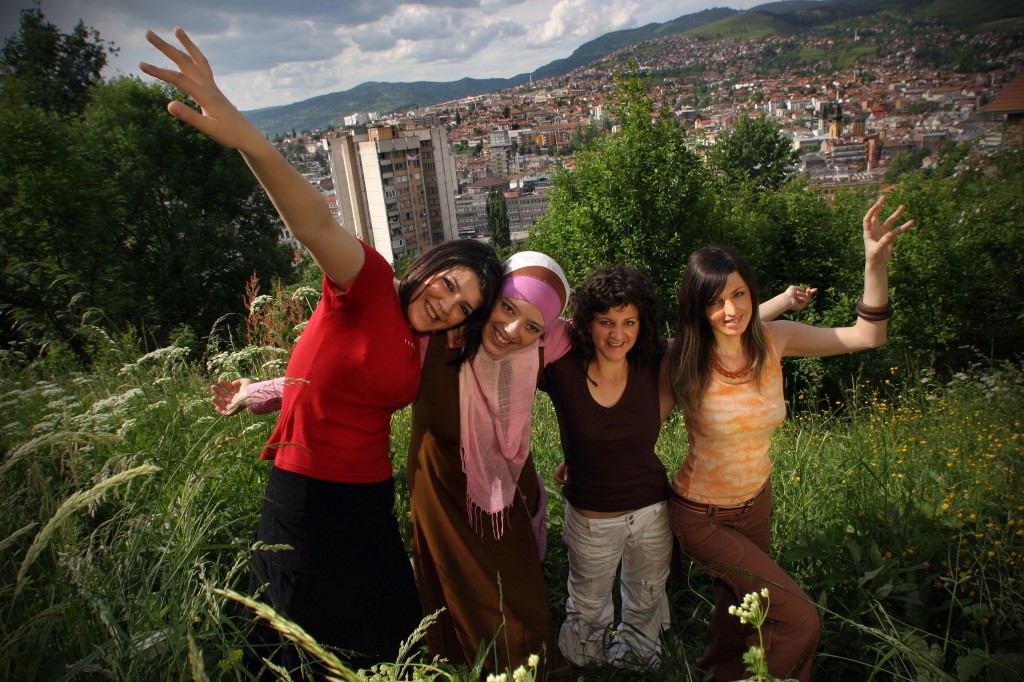
Fikret’s birds captive
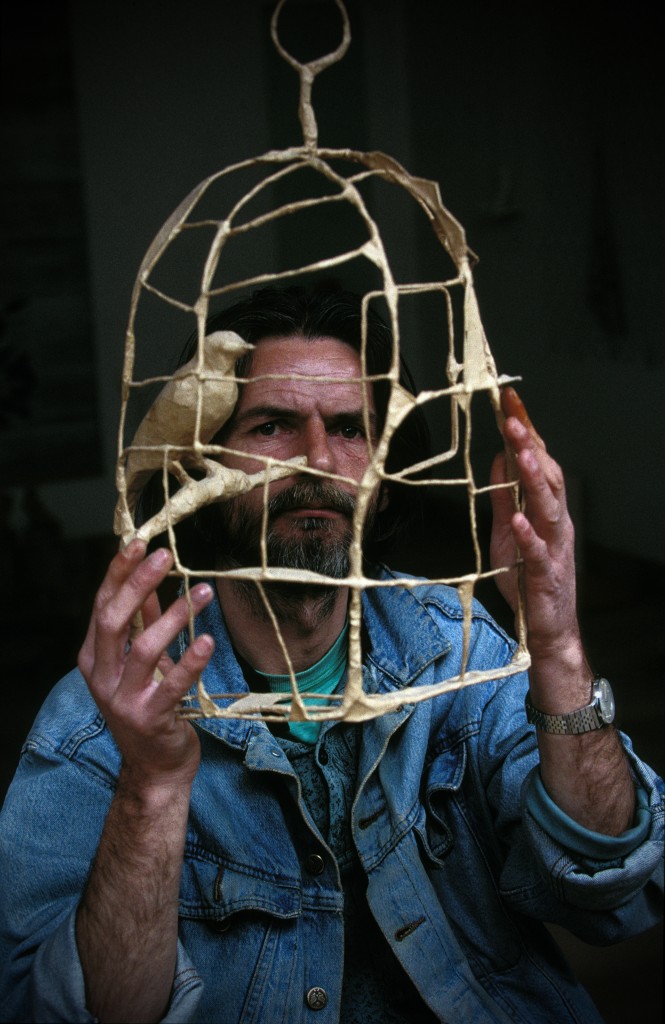
Listen to testimony
The birds of Fikret Libovac, sculptor and professor at the Fine Art Academy finally found freedom and their colours returned. During the war they were locked up in their cage like the inhabitants of the town martyrdom.
“I remember the first time we met twelve years ago, during the siege of the city. You were interested by the few artists who refused to flee Bosnia - Herzegovina. It was their strength: the strength of the spirit, that of my bird in a cage. I was in a period where I carved birds in cages. I was a bird and my cage was this city. But now, ten years and more of peace: no more cage, freedom reigns, and colourfull birds are nesting. Now, it’s another world.”
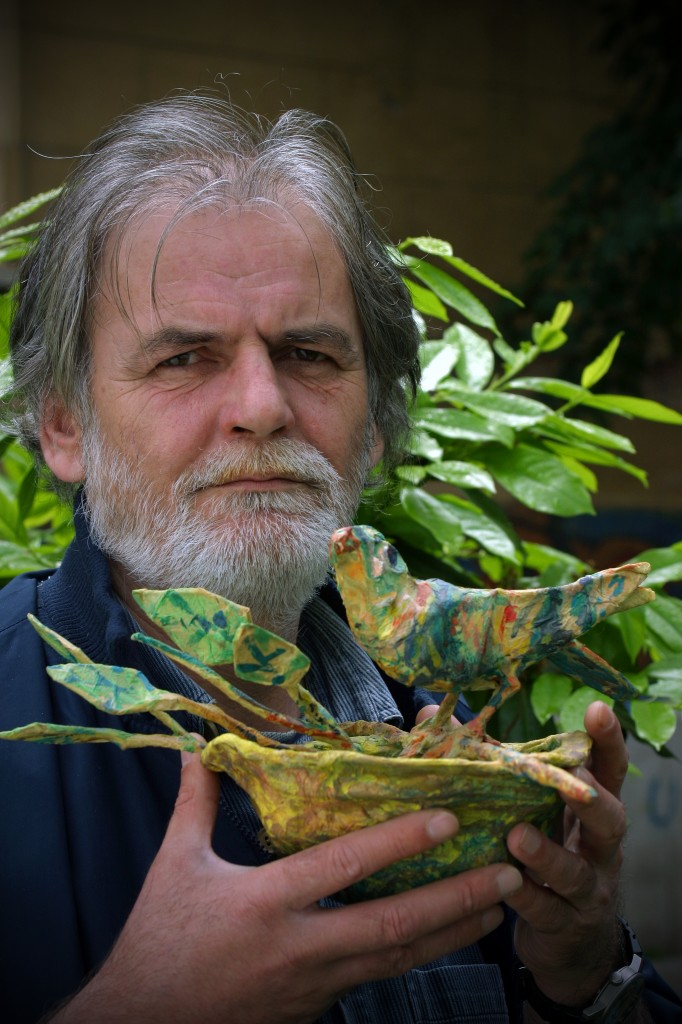
Adi, the false shoe-maker
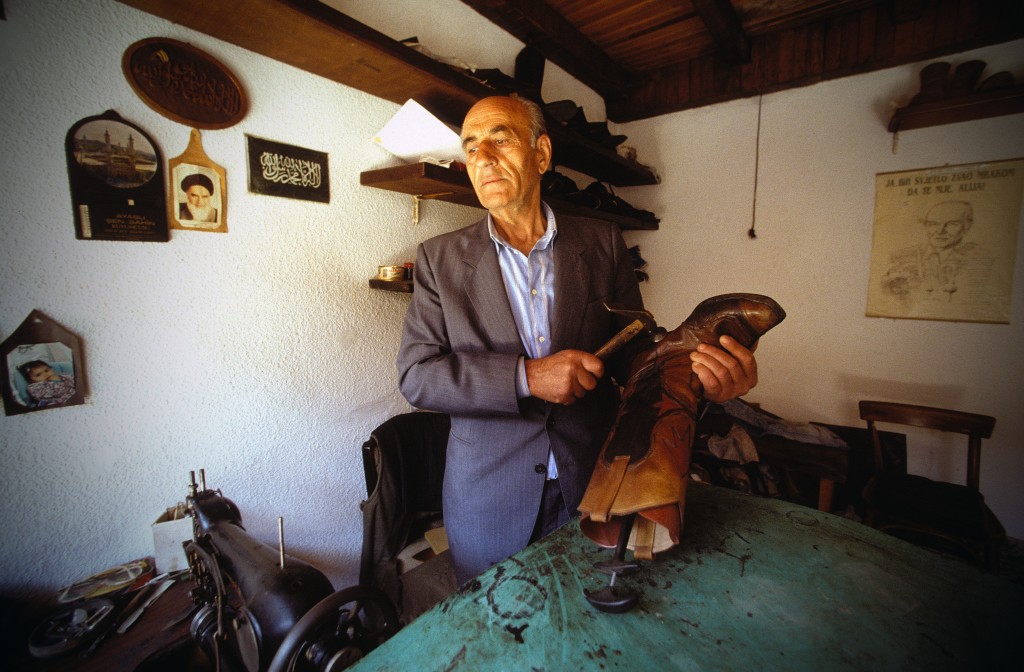
Listen to testimony
Adi was not a real shoemaker of Bascarsija. I made this discovery only twelve years later when I found him in a carpet shop, just opposite the shoe shop. He explained that at the time he was trying to keep the store of his friend who had been injured during the war operating. He was amused by this misunderstanding that he agreed to play the shoemaker role for me in the same old shop, today completely renovated. The irony of the situation is that he was showing me the same leather boots, which have never been sold since the war.
“My shop, in reality is the one in front, I sell souvenirs for tourists. Before the war there were many tourists from Europe, Italy, Germany, Spain…but now people are afraid and don’t came visit our city. During the siege the city was full of soldiers, they were my customers. The soldiers from Argentina they bought a lot, they spent their entire paycheck here in Sarajevo, the Italians also they were good buyers, the French not so good.I sold many carpets, some 150 years old. Now, we are waiting, the country is very interesting, beautiful so tourists will surely return.”
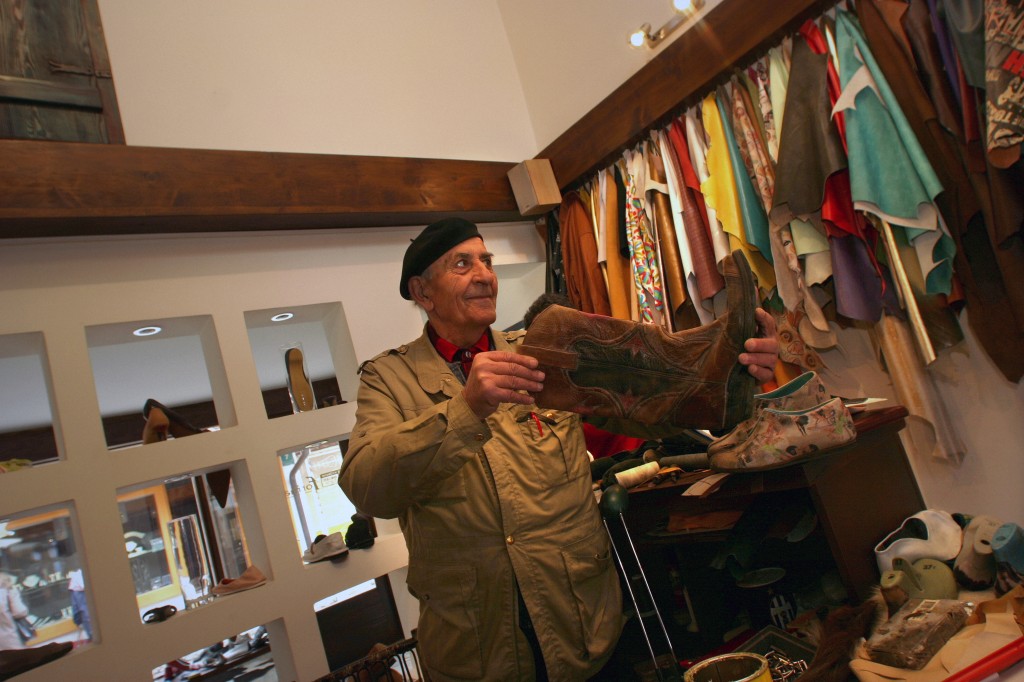
Chess Club Bosna
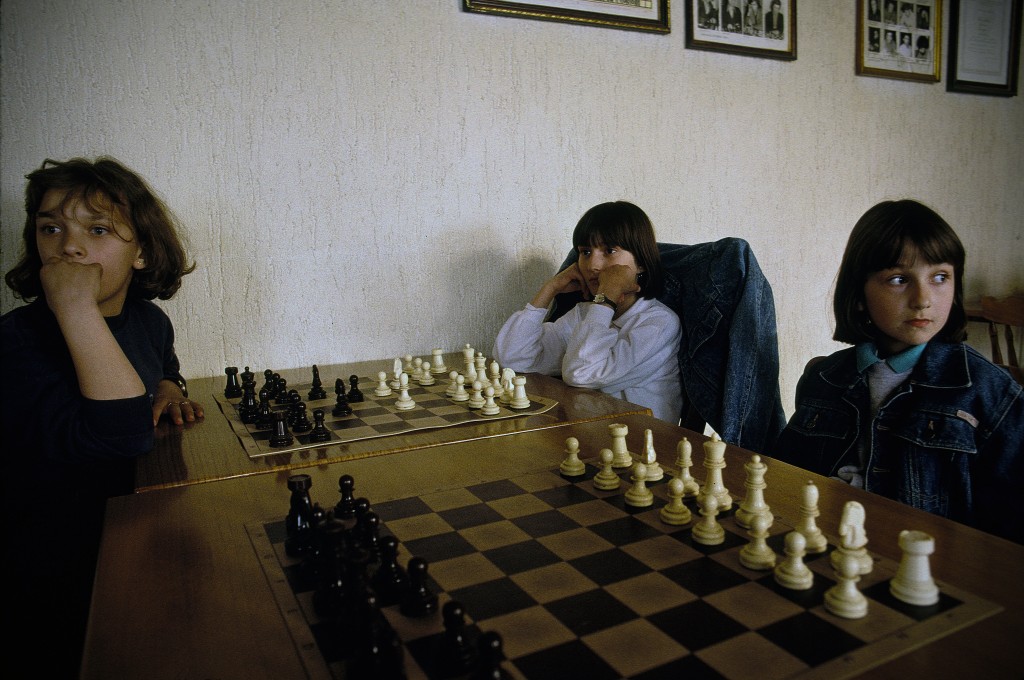
Listen to testimony
Sanja, Mersa and Ivana went almost every day to the Bosna Chess club during the war. It was a way to keep the children busy and away from the streets where the snipers aimed at them. But the three girls have grown up and given up playing, except for Sanja. Sanja, however, more motivated, continued to play high-level chess for a few years before going to university. Life has gone on. The three little girls have grown up and the chess pieces yellowed!
Sanja : Hi Ivana, we lost touch with each other since the days of the chess club. It’s been over 10 years. Both Mersa and you came to the club just because your parents wanted to keep you in a closed place, much safer than playing in the streets. For me, it was a real passion and I continued to play. I quit chess just five years ago, after I had won lots of competitions…
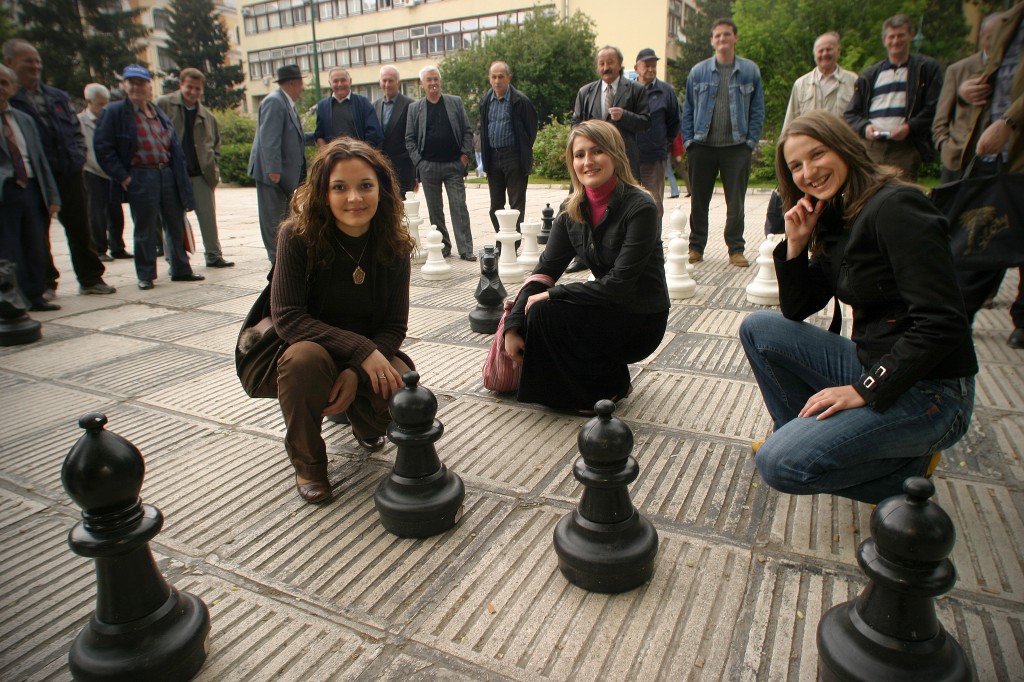
Wounded in her body not in its heart
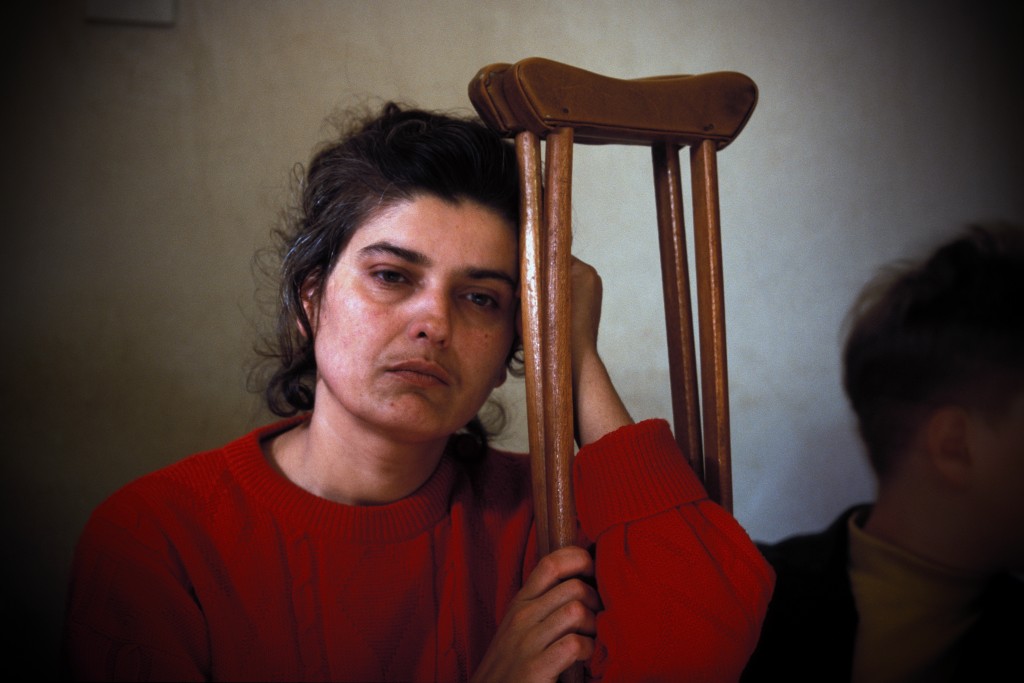
Listen to testimony
Amra seems much younger than twelve years ago, when she was injured on the front-line in Dobrinja and treated at the hospital located in the supermarket. She was sad, sitting and waiting for the doctor. However, this did not stop the people on the street recognizing her and tell me where she lived…
“I was born on April 28, 1962. I am a Taurus and you can feel and see that, isn’t it?I work at the Kosevo hospital. I am a nurse. I’m not married, something a bit strange here but not for me. I live with my mother, but I have my own apartment. I am a very independent woman. I’m interested in everything and nothing in life. I love travelling, I love coffee, I drink, I love to have fun, organize parties with my friends, live my life, that’s all… Life was good before the war. Today, I live well but not like before… I love travelling, I prefer the sea, I love my job, love my friends,
I was injured during the war. Here on this old photo twelve years ago I was at the clinic. Finally, it was not a true clinic, but a doctor had built a hospital with an operating room in the former supermarket; now it is a mall again. I am healed and I feel good. I’m happy because I still have my legs and arms. I am well. In brief, I’m happy. You can see this, right?”
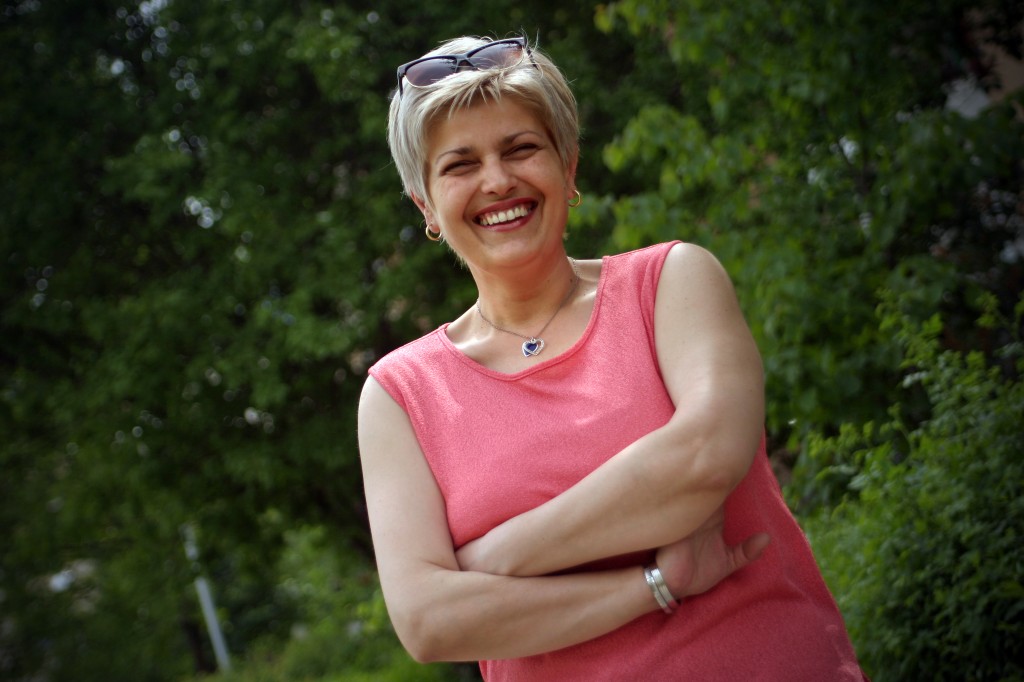
Sanela and the library books
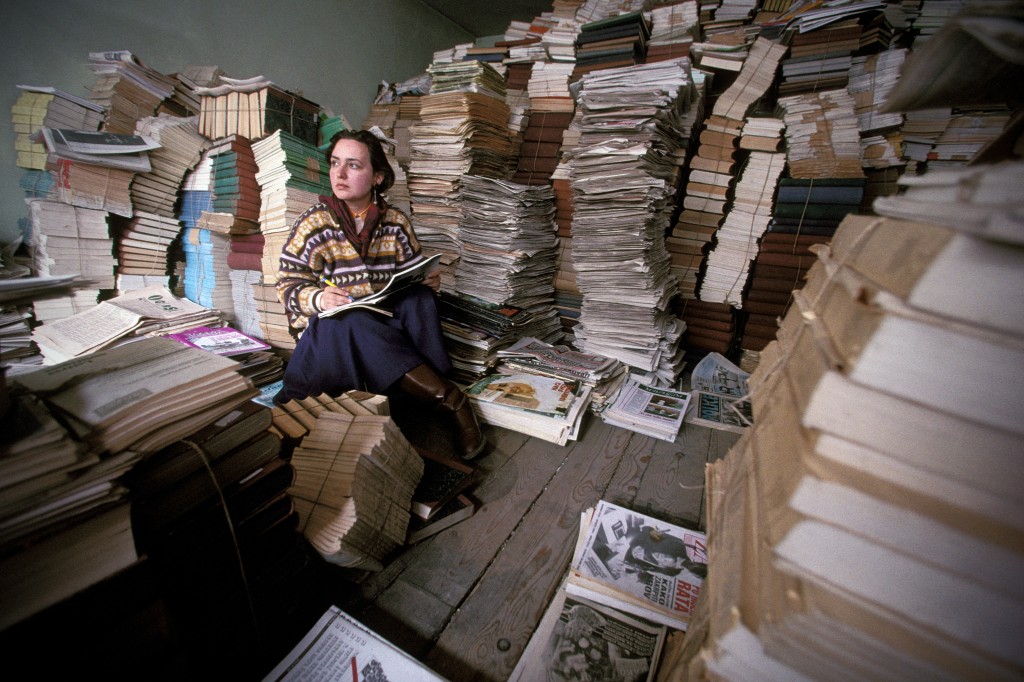
Listen to testimony
During the war this student helped to organize the files and the books that were saved from the fire at the National Library, housed in the stately Vijecnica, the Austrian-era Orientalist Town Hall bombed in the first days of the siege in April 1992. Thousands of books went up in flames but students and others tried to save what written history remained of the Bosnian culture. Today the young woman is a renowned doctor, and works for an UN organization. We met together at the National Library…
“I’m Senela Krehic. I am one of the inhabitants of Sarajevo who remained in the city between 1992 and 1996. During this period, I worked for academic and national libraries. Between 1 994 and 1995, you came to see me. You were interested in our library that had been destroyed and you made some photos, including one where I’m sitting in piles of books and that was what was left of our library. It was a place where we kept the remaining publications, and these books were very important for our culture.
It was our shelter where my colleagues and myself were trying to identify and organize the best books that were not lost in the flames.
Thank you for returning after twelve years to a different Sarajevo.But by seeing those old pictures I realize what we had done and what we still have to do today.
Look around you : our library has received a lot of help for its reconstruction, but it is far from what it was before, the building is still a ruin.
Years pass and I feel we have forgotten that everyone had promised :
“once peace returns, must be as beautiful as before, the symbol and centre of our culture”.
But in the meantime… It’s time to move on.”
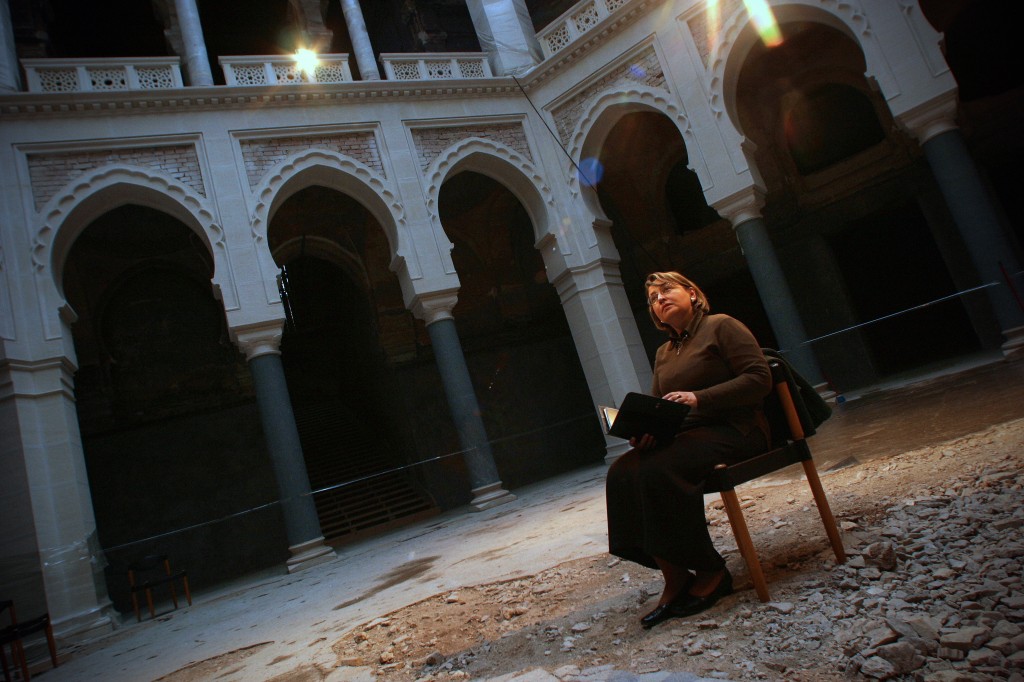
The Kovaci barber
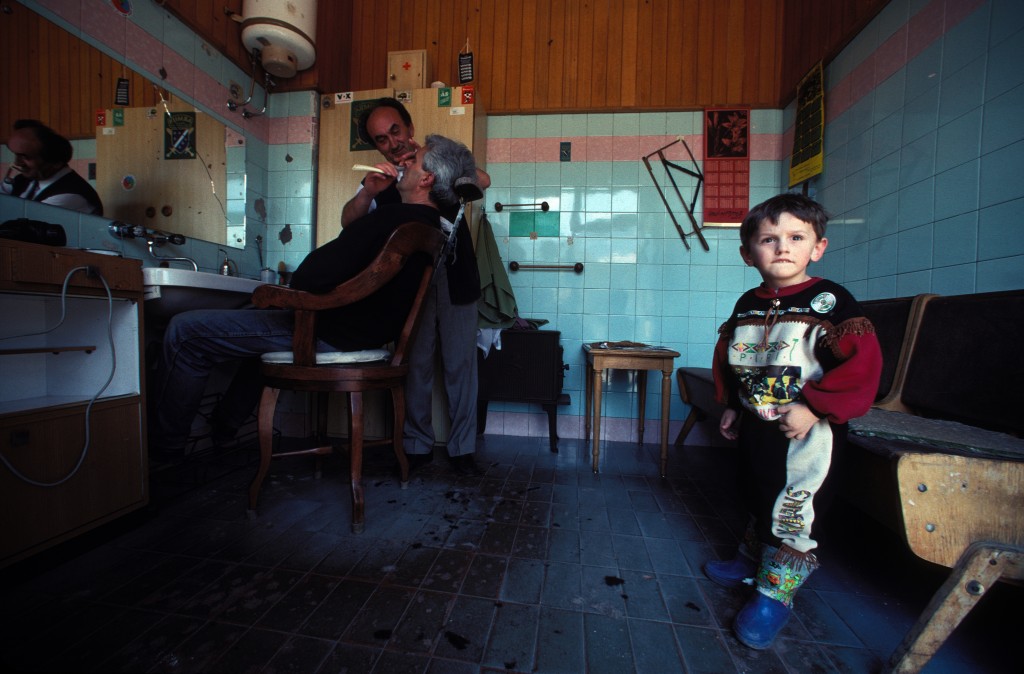
Listen to testimony
Only the decoration of the shop has changed and not even that much. In Aziz’s shop, the barber of Kovaci on Sarajevo hill, customers are still queuing.
Old Aziz has acquired more wrinkles while Adli, his grandson, now fourteen, has moved back to Dobrinja with his parents. He spent his infant years with his grandfather at the shop, far from his house then located on the front-line. Today he thinks about his future and after finishing high school he dreams of a strange job for a young boy…
“My name is Adli and in a few days I will be fourteen.I remember the long days spent here with my grandfather, the barber of Kovaci. But he tells me often the stories of that time.
Our family house is located in Dobrinja, near the airport so my parents chose, during the siege of the city, to leave me here in the city centre, with my grandfather, this place was much more secure.
So I spent nearly 4 years in the middle of scissors and clippers.
Today, I returned to live with my family in Dobrinja. I came here just to meet you. I wanted to see this old picture! The passion for barbers’ work has influenced me. I think after high school I will go into a professional school and open a hairdressing salon… a fashionable one…or, more likely take over grandfather’s shop, I love this place.
My future is here in Bosnia, in Sarajevo. I want to marry and have many children and become a barber… like my grandfather.”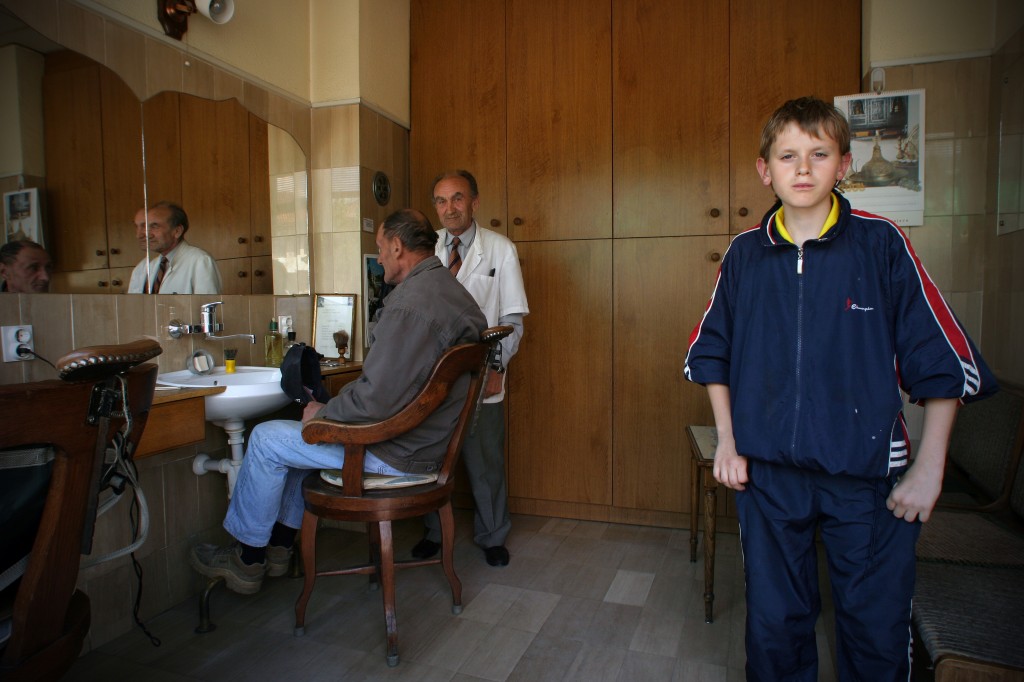
Amra dream
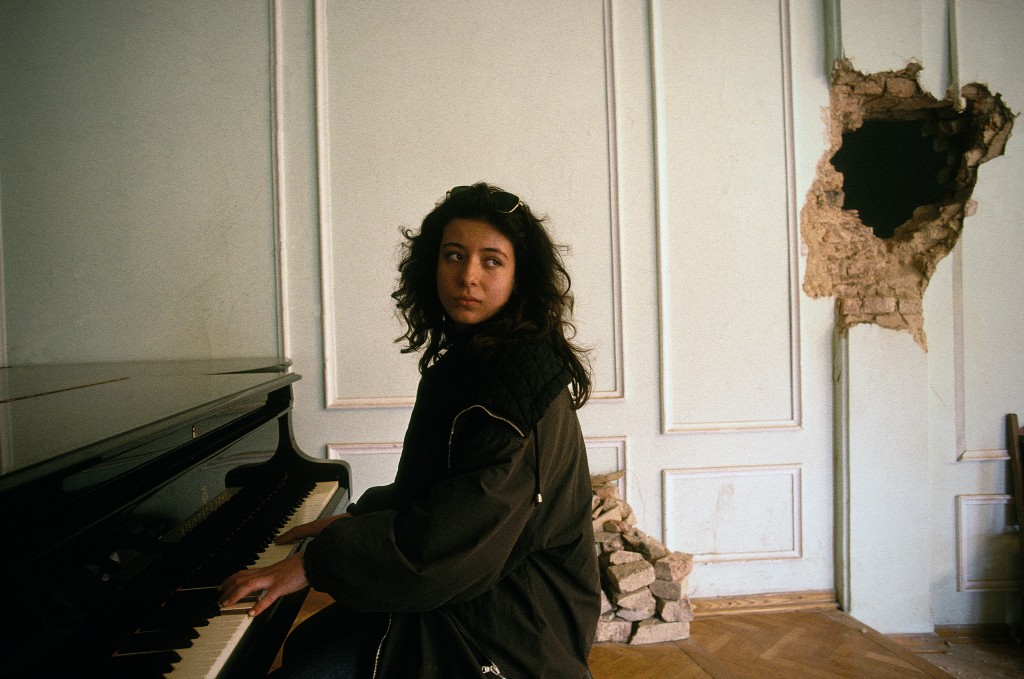
Listen to testimony
I was astonished by the fury and courage with which the girl relentlessly hammered on the piano keys. Curfew or not, she was every morning at the academy of music in the deserted, bombed concert hall. She dreamt of a career in music that kept her going through out the war. I went to search for her in the same place, the huge hole was still there to witness this painful era, and so was the piano. But she was not there, other priorities had taken over her life…
“My name is Amra. The marriage filled me, I think you can see that!My son will be born in a month and that’s pure bliss. I remember this period at the Music Academy, twelve ago. A few weeks earlier, a shell had blasted the wall of the concert hall. After the first moments of shock, my passion for music took over. I went back to play the piano, with fear of course, but I went there regularly because my dream was becoming a concert pianist. Why have I given up music ? Right now, music does not allow you to earn a living here. If you want to survive, you need to adapt. I think it must be somewhat the same thing in other countries but here in Bosnia, after long years of war, “real” culture is no longer a a priority. Commercial values dominate artistic ones, that’s the key to success here.Music and singing remain an important component of my life: I always dedicate a part of the day to this passion and here, I will sing you traditional Bosnian songs, even if my diaphragm cannot move well because of my belly !My situation and my professional life in Bosnia - Herzegovina? Despite university studies in psychology and my Masters degree, I am unfortunately still unemployed. Even if you have a good level of education and are ready to enter the job market, if you don’t have connections you can’t find a good position; it is very difficult. The main reason is the wariness older people have of graduates because they fear for their social position: the arrival of new ideas endangers their privileges. In conclusion, it is easier to find work for average people, than educated ones.The political and economic situation of my country worries me. Just look around and try to understand. Despite everything, I am happy and hopeful because I’m expecting a child. This is a true blessing for me”
